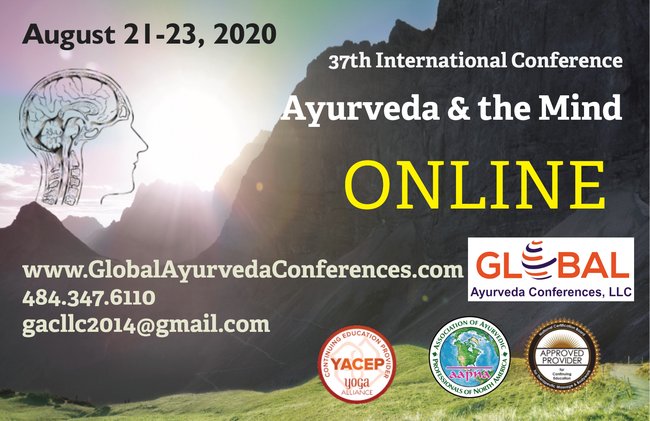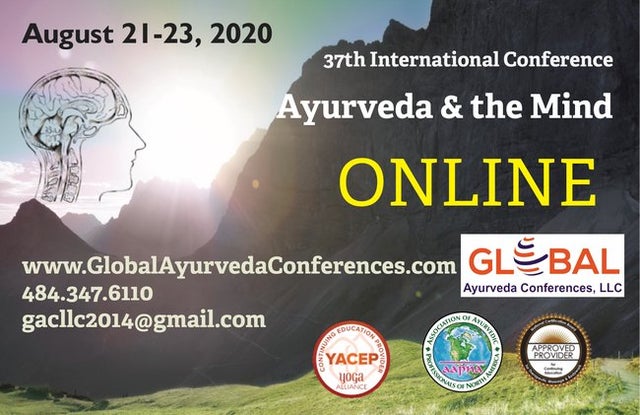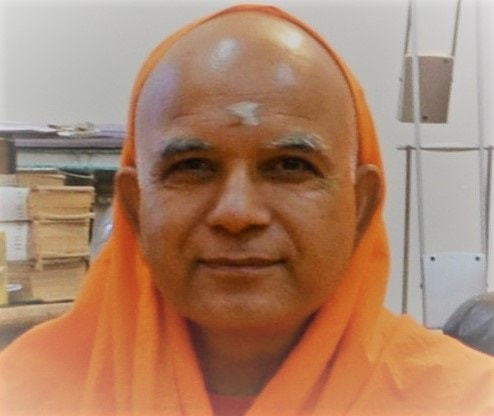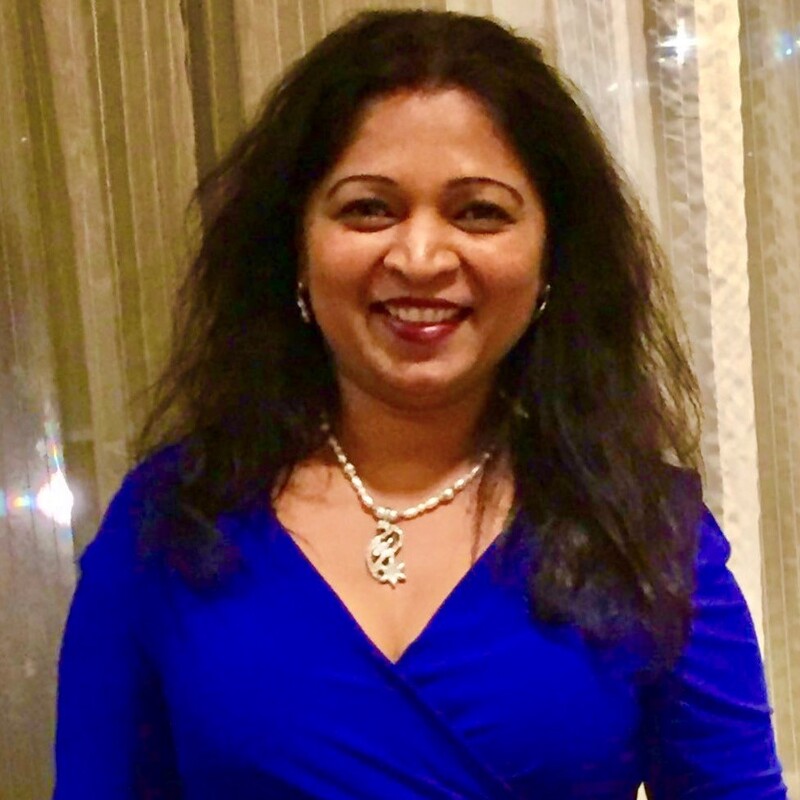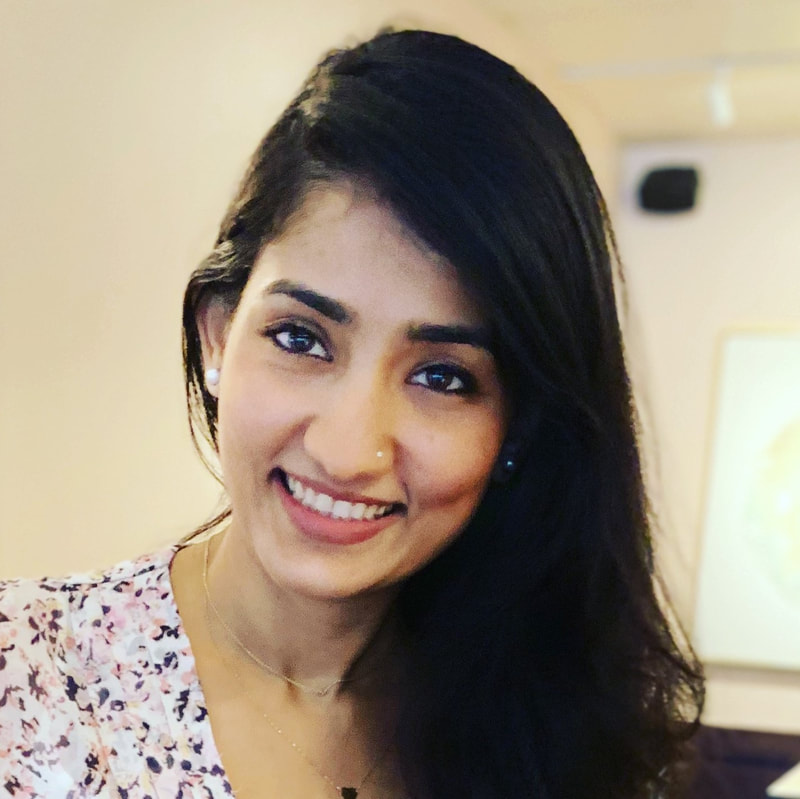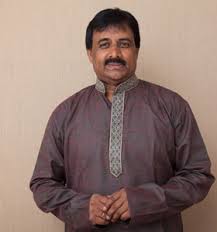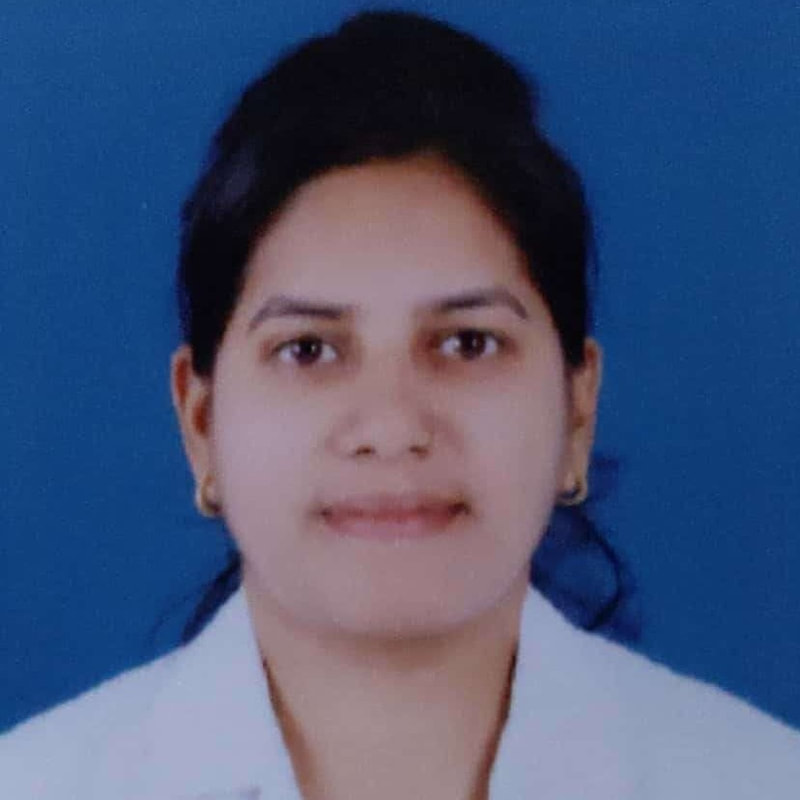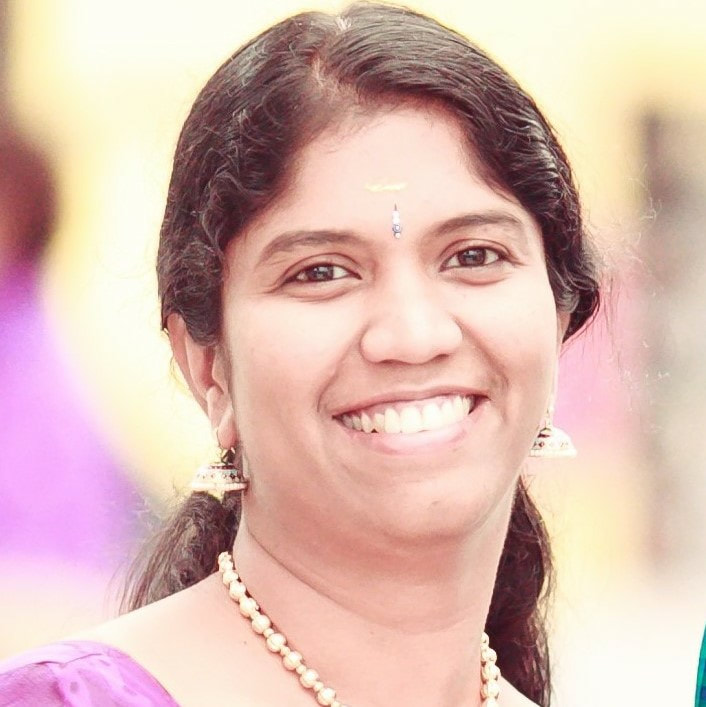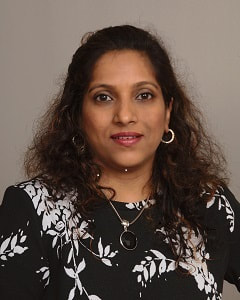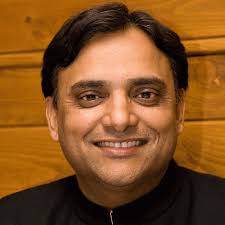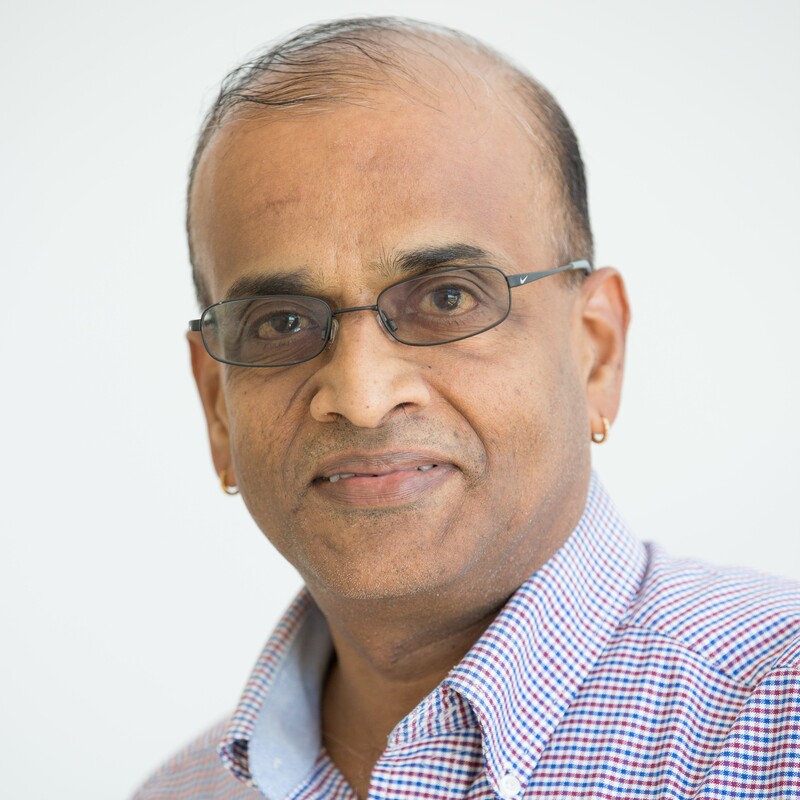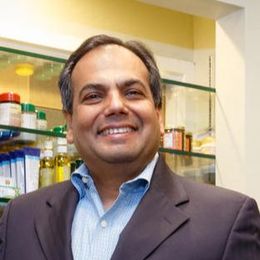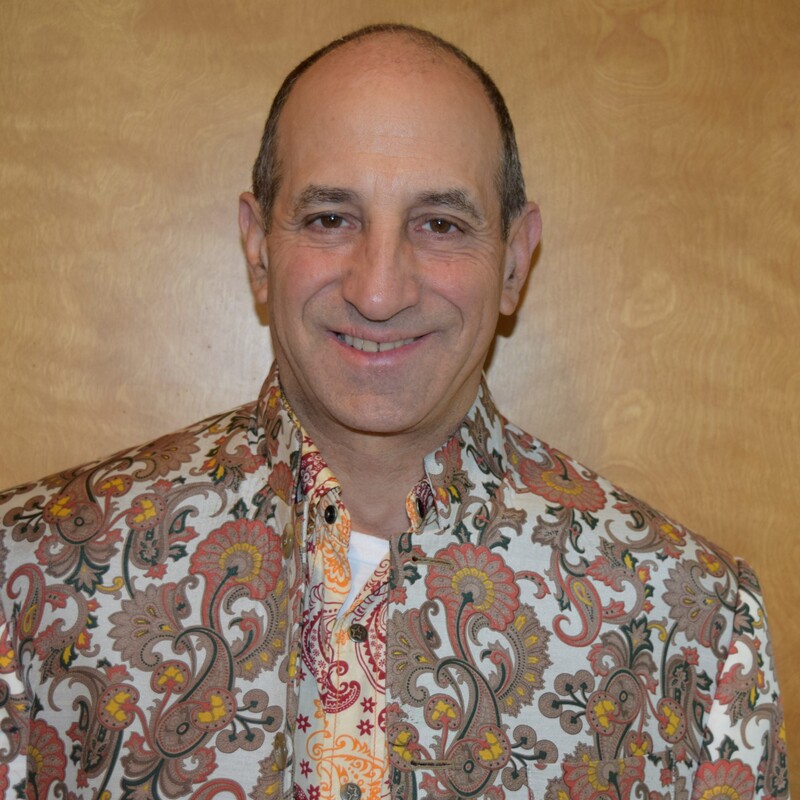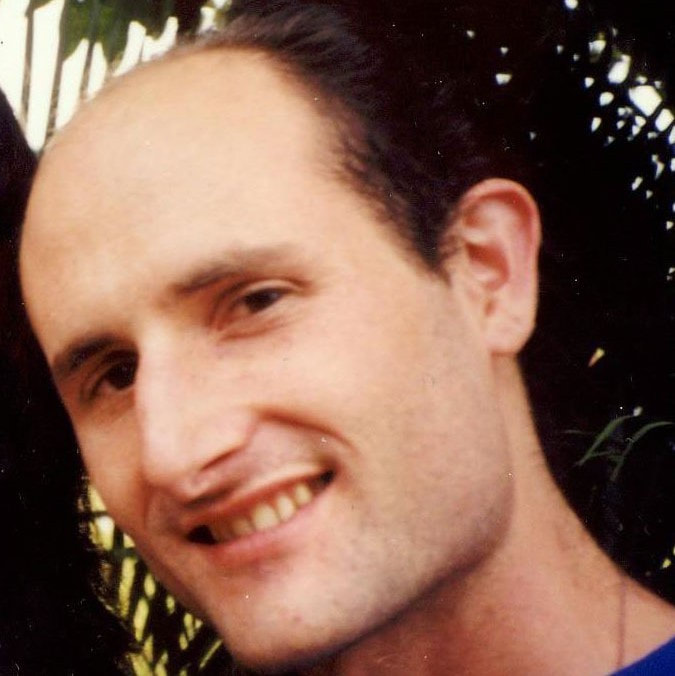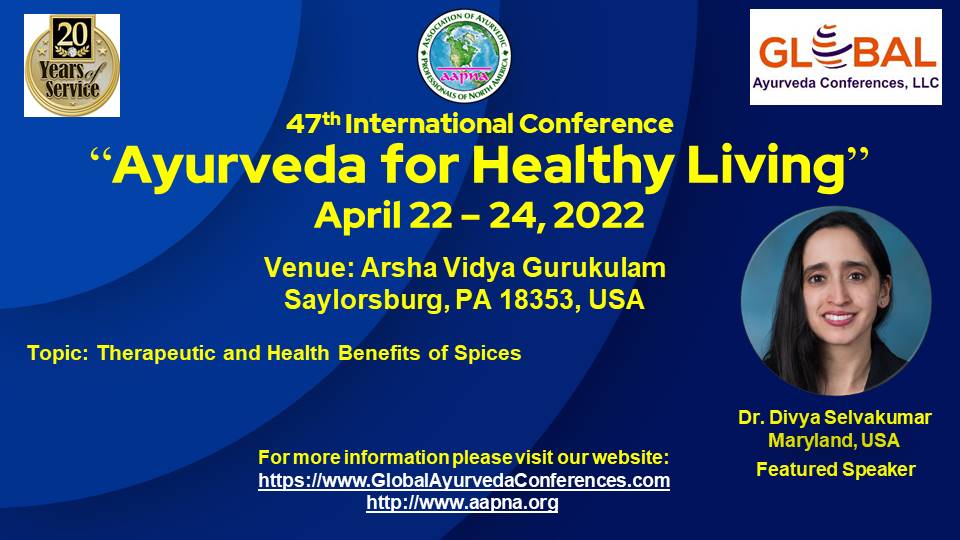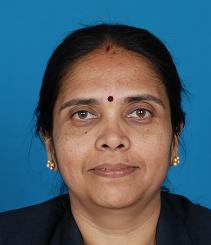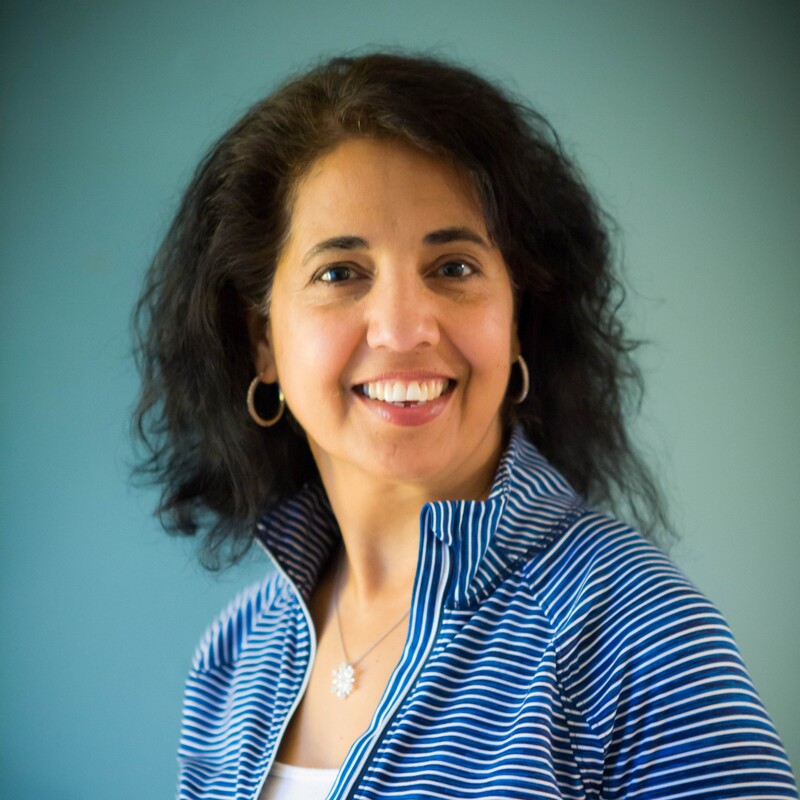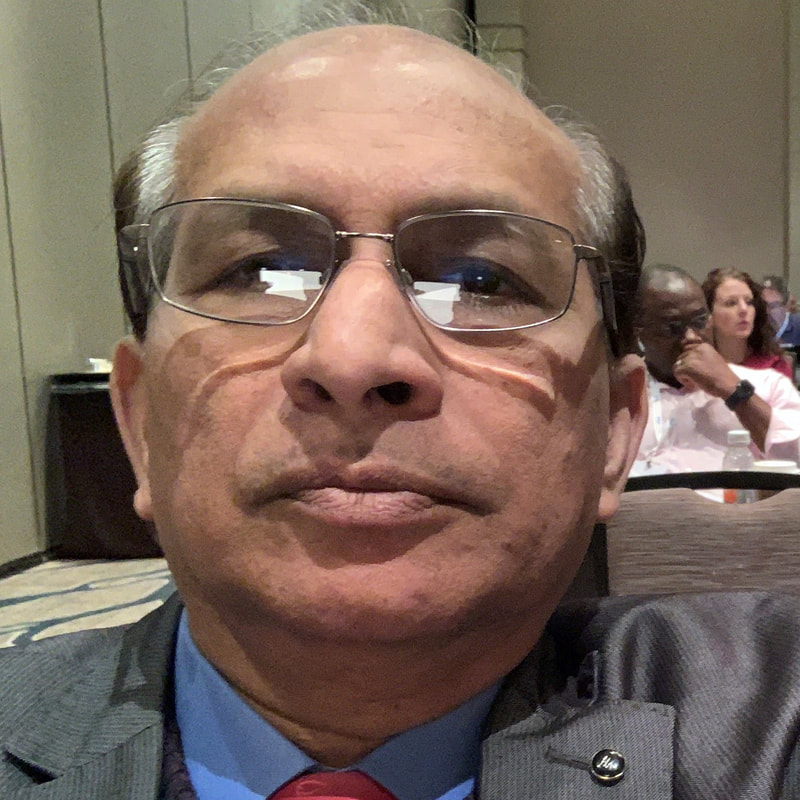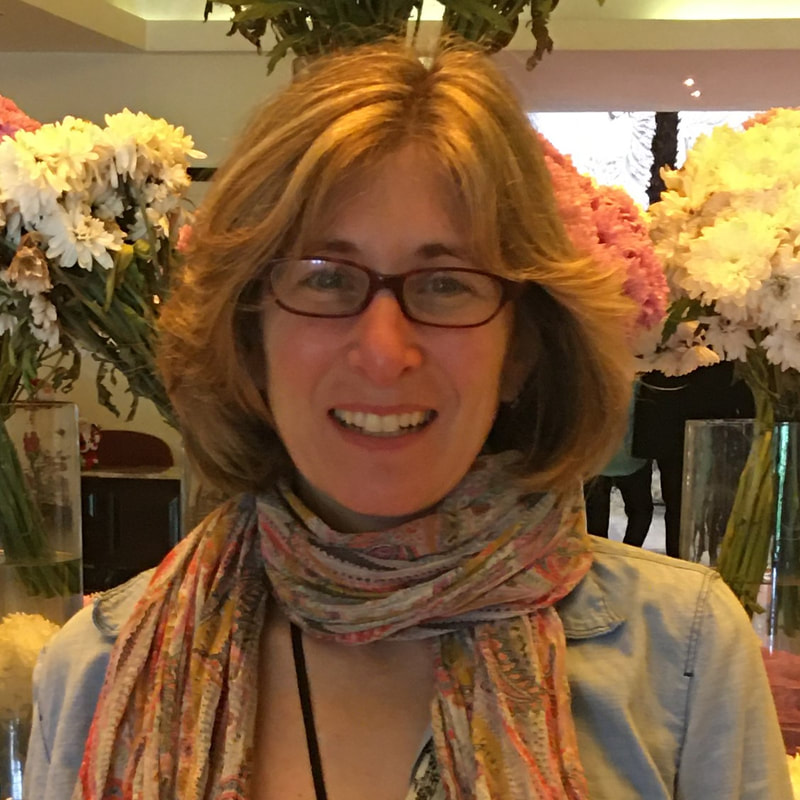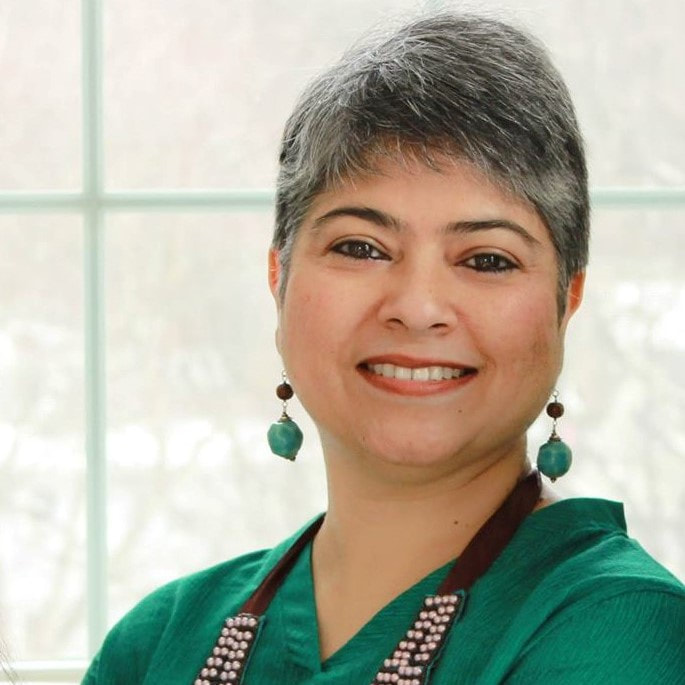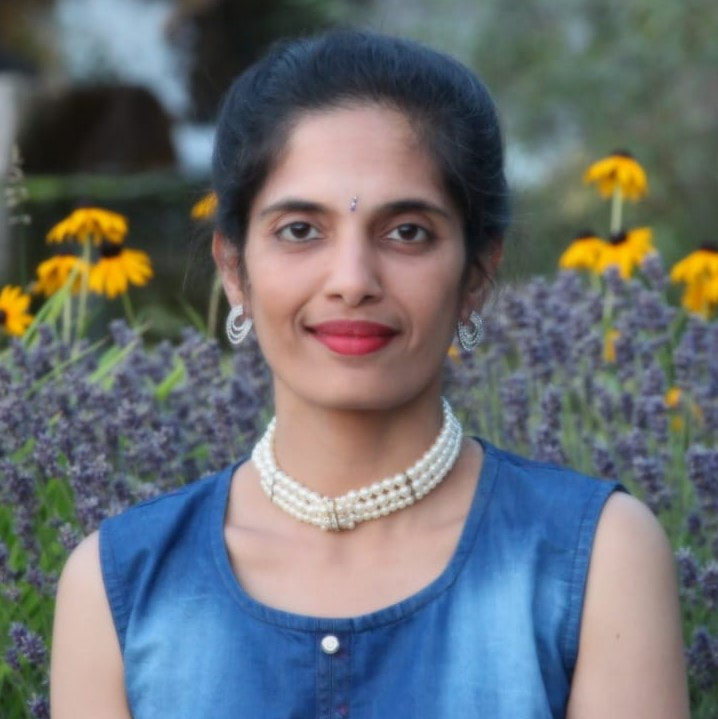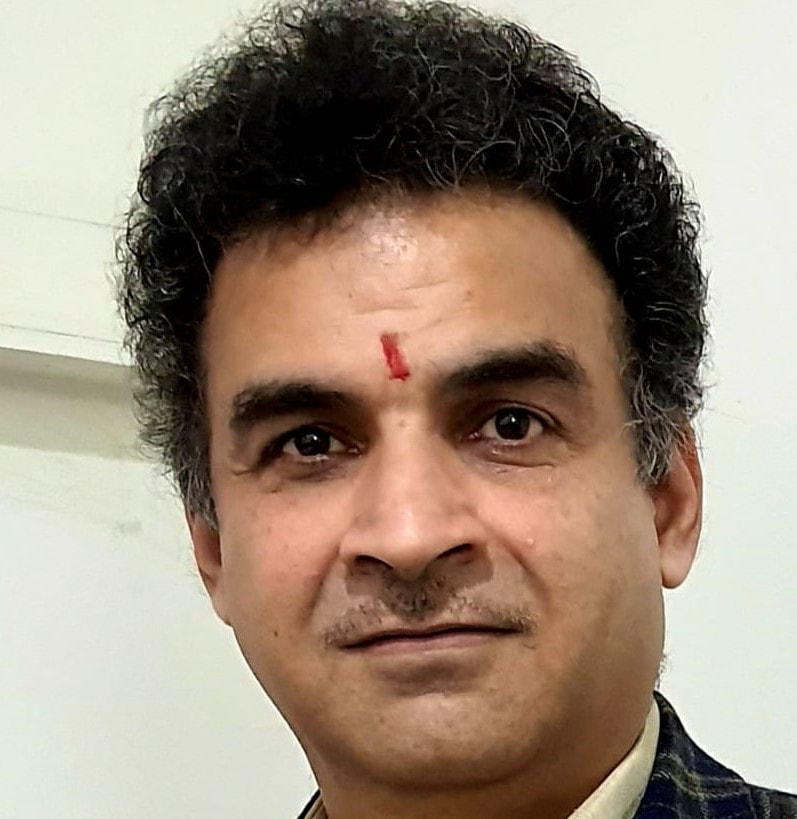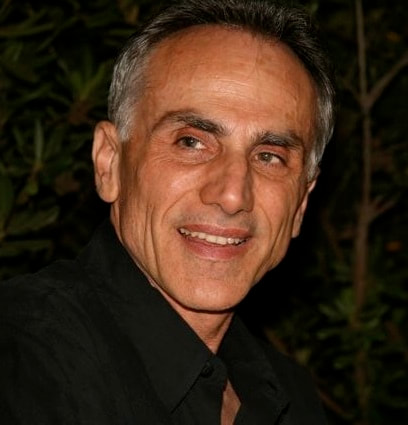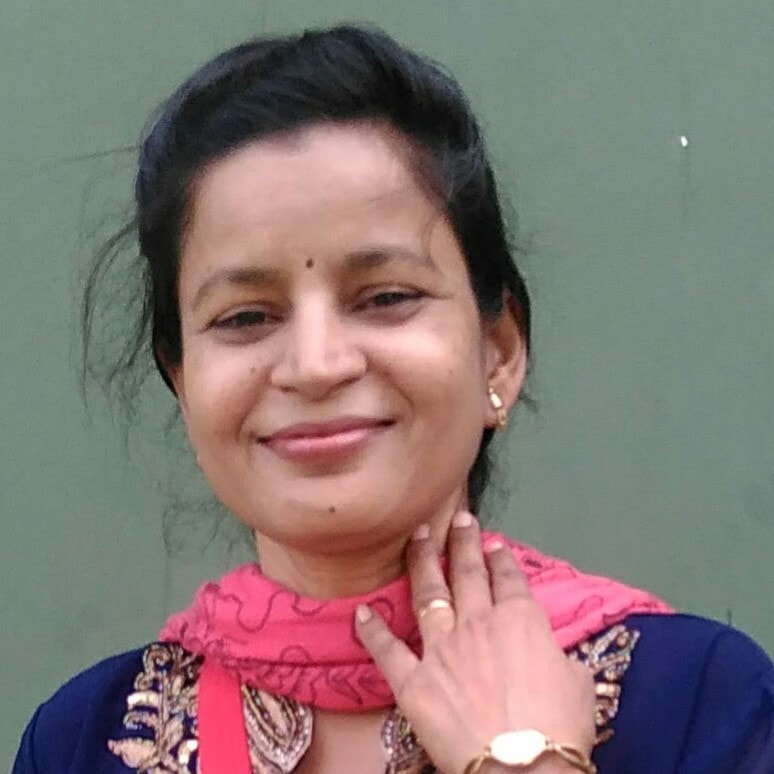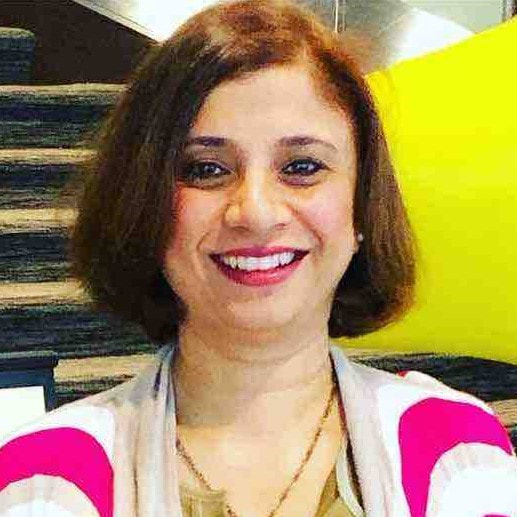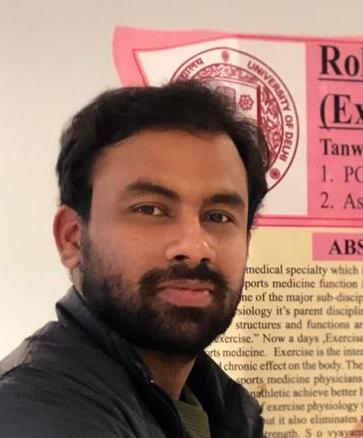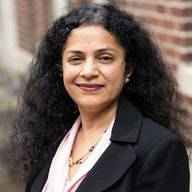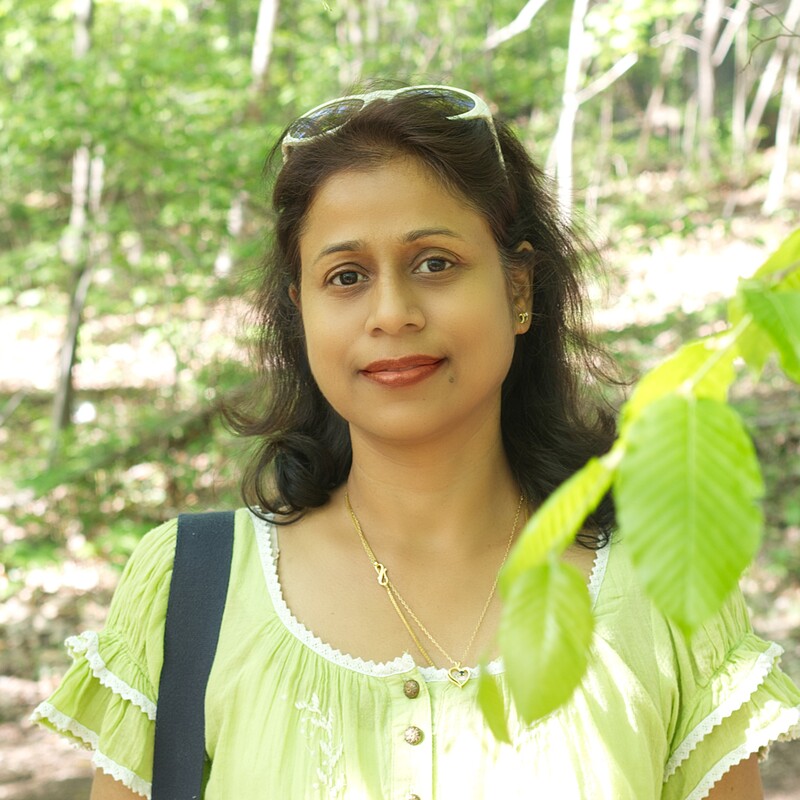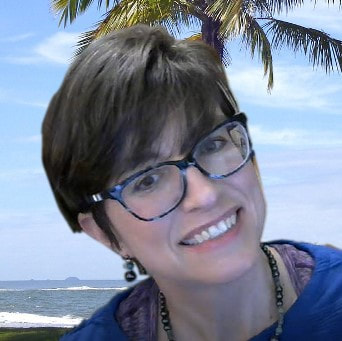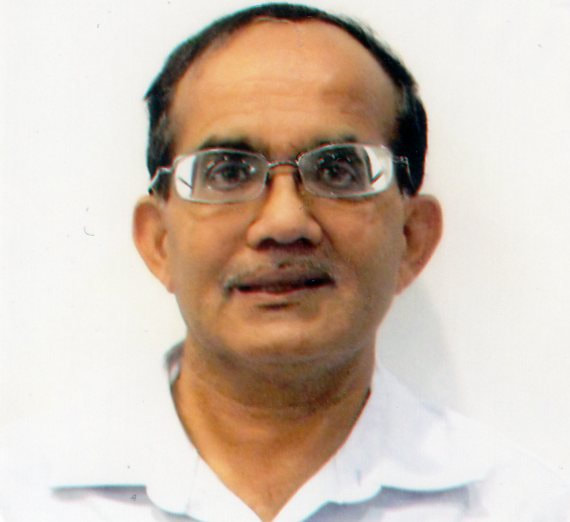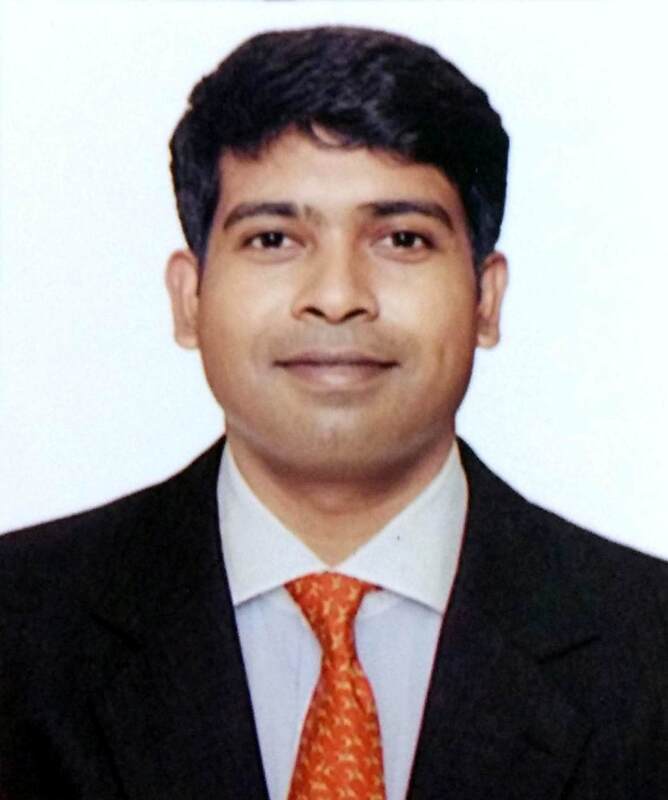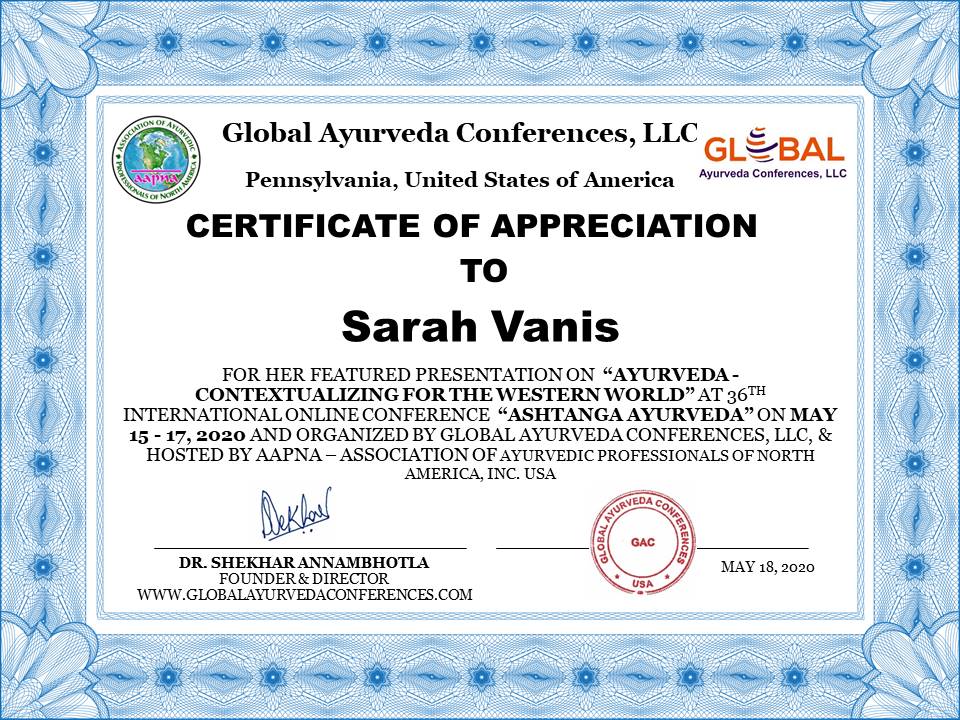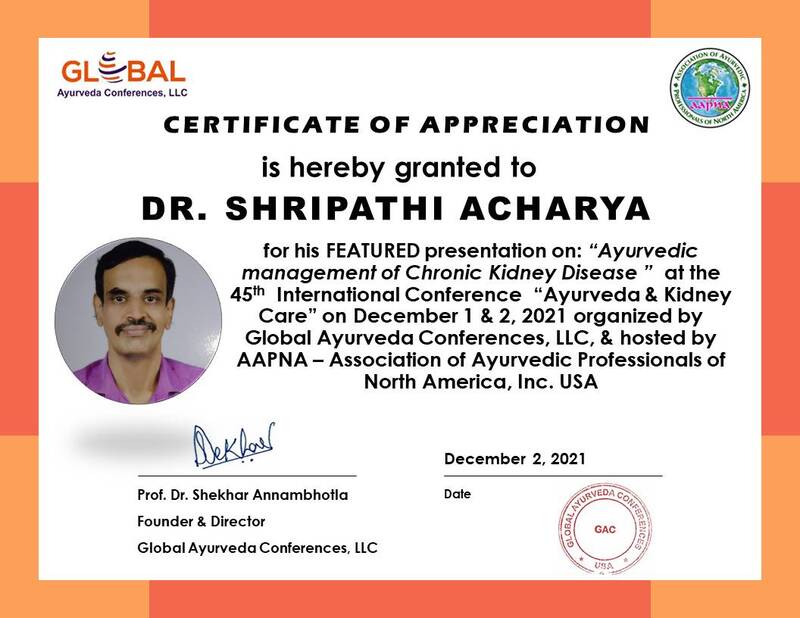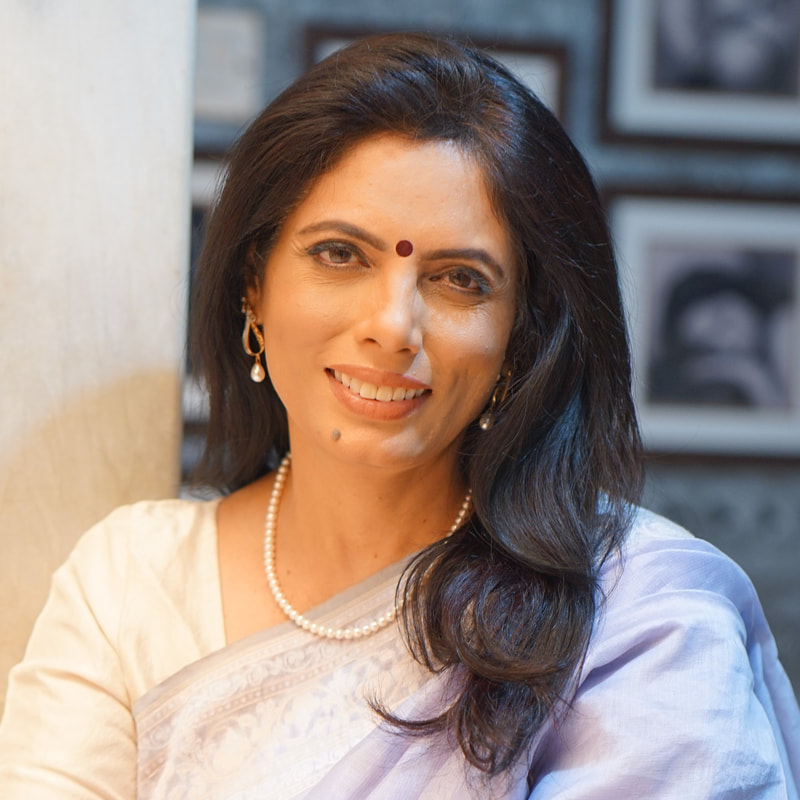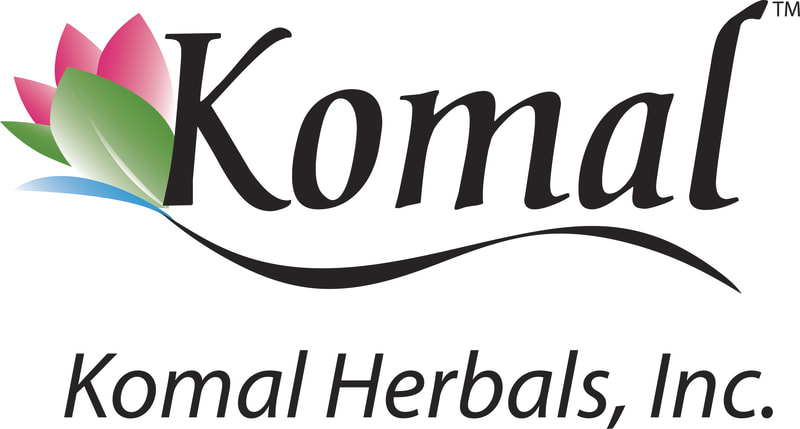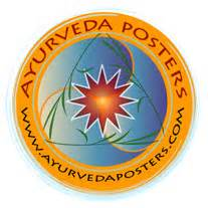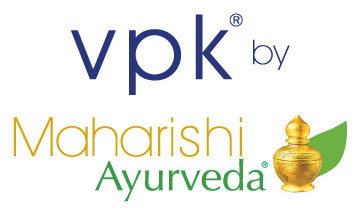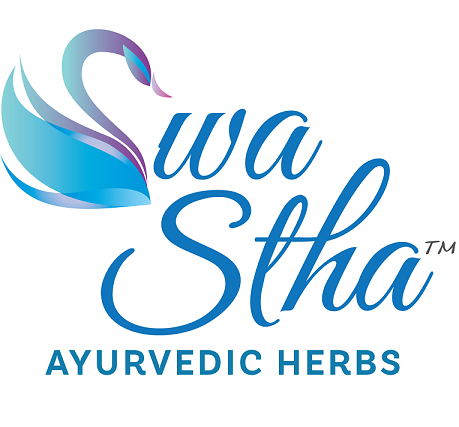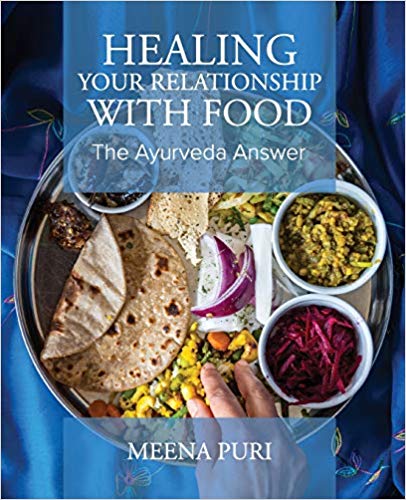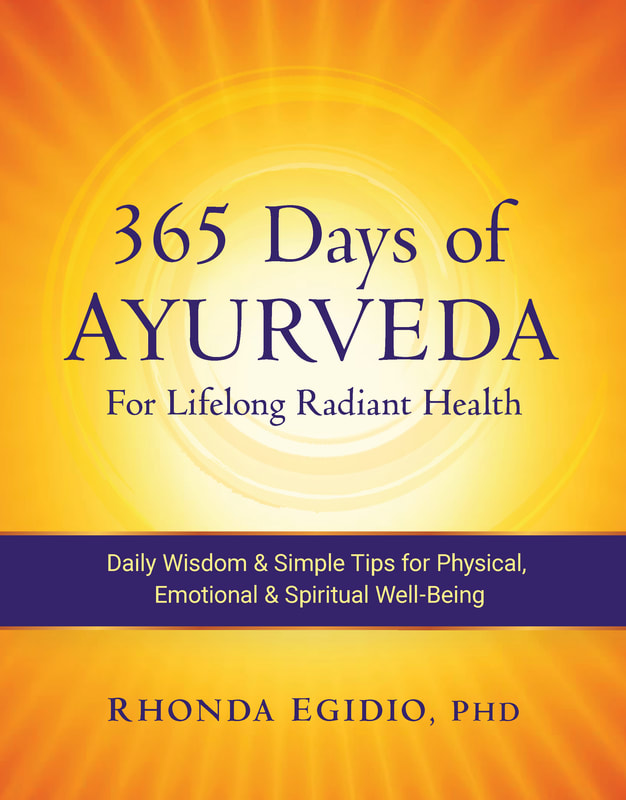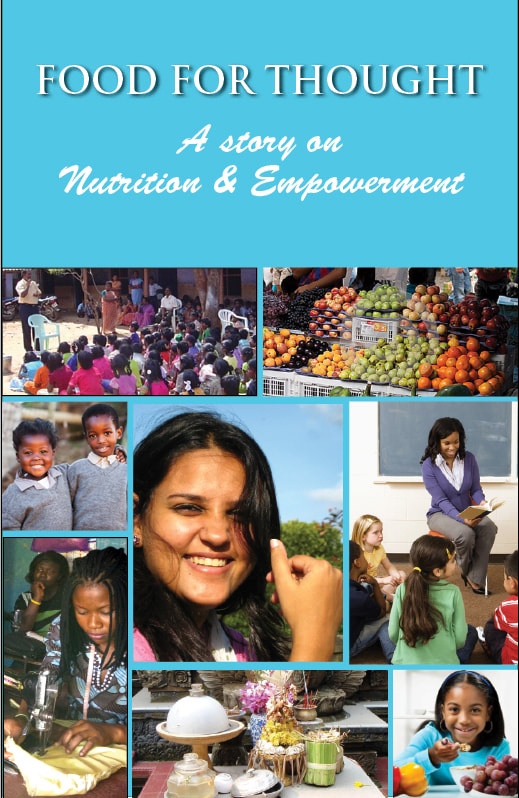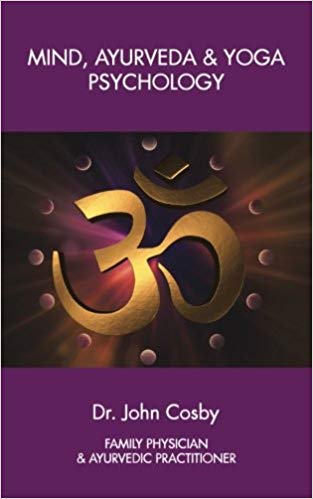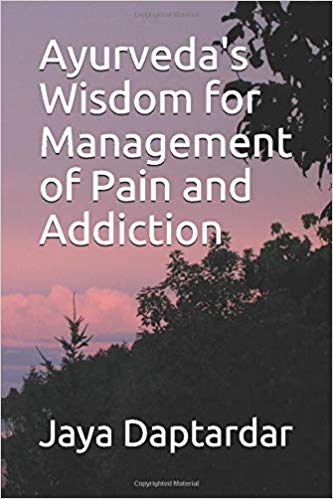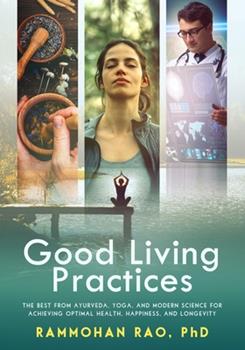1. Vedanta and Psychology in Healing the Mind - Swami Jnanananda Dr. Ashok Chhabra, MA, PsyD, Pennsylvania, USA
2. Addiction and Mind – Jaya Daptardar, BAMS, MHA, RAD, Connecticut, USA
3. Exploring the Mind – An Ayurvedic Approach - Suresh Swarnapuri, BAMS, MD-Ayu, Cork City, Ireland
4. Mind and Digestion – Nidhi Pandya, RAP, New Jersey, USA
5. Satvavajaya Chikitsa - Psycho Therapy - Partap Chauhan, BAMS, New Delhi, India
6. The Koshas – Aaron Staengl, CAP, Virginia, USA
7. Manah Swasthaya: Wellness of Mind – Yogini Patil, BAMS, MD-Ayu, Pune, India
8. Emotional Eating Disorders – Divya Selvakumar, PhD, RD, Maryland, USA
9. Clinical Approach to Sutika Unmada with special reference to Puerperal Psychosis - Sushma, BAMS, MD-Ayu, Uttar Pradesh, India
10. Understanding the Human Mind and Brain: Ayurvedic Chemistry of the Mental Body - Ram Mohan Rao, PhD, CAS, California, USA
11. Mind in Ayurveda and Vetharthrium – Priyaa Balamurugen, BAMS, AD, RAD, MSc (Psy), LMT, New Jersey, USA
12. Mind and Energy - Meena Puri, RAP, Michigan, USA
13. Stress Management – Ravi Tamerisa, MD, Texas, USA
14. Effect of Sharira Doshas on Mind - Manju Gutta Kolli, MS, CAP, RPh, California, USA
15. Detox & Nourish - Key to renew: How by following ayurvedic panchakarma detox followed by Rasayana reverses joints degeneration - Smita Naram, Ayurveda Uttama, Mumbai, India
16. Ayurvedic formulations for day to day practice - Shripathi Acharya, BAMS, MD-Ayu, PhD-Ayu, Karnataka, India
17. Sattvavajaya Chikitsa : Ayurvedic Psychotherapy and postpartum depression - Vandana Baranwal, BSc., BAMS, MD-Ayurved, Ohio, USA
18. Aahara: the power of food in mental health issues - Anukur Kumar Tanwar, BAMS, MD-Ayurved, New Delhi, India
19. The role of Ayurveda and yoga in healing most common mental disorder: Anxiety - Asavari Manvikar, BAMS, MD-Ayurved, Minnesota, USA
20. Vedic Medical Astrology for Mind - Michael Mastro, BA, RVA, California, USA
21. Anxiety and Anger – Addressing Vata-Pitta Emotional Imbalance - Stephanie Brail, CAP, ERYT, Maryland, USA
22. Practical Application of Ayurveda and the Mind - Sarah Vanis, Advanced Diploma of Ayurveda, Diploma of Ayurveda Yoga Teacher, DipEd, BSocSC (YWk). DipComWelf, DipCommDev, DipCommYWk, DipVisArt, Cert IV TAE, Chef, Australia
23. Role of Mind in manifestation of disease – Deepti Kumari, BAMS, MD-Ayu, Mumbai, India
24. Ayurveda for emotional well-being and mental health professionals – Sweta Vikram, RALC, New York, USA
25. Ayurveda and the Mind for Sexual Health - Sudhir Bhola, BAMS, Haryana, India
26. Mind: New Discoveries - Hemang Shah, BAMS, MS-Ayu, Maharashtra, India
27. Ayurvedic remedies for Insomnia – Balancing insufficient sleep – Anjum Nadaf, BAMS, AD, RAD, New Jersey, USA
28. Ayurvedic Approaches to a Healthy Mind, Role of Sleep & Yoga - Nagabhushan Moolky, PhD, CNS, Illinois, USA
29. Ayurvedic Herbs for Mind - Amitabh Gumman, BAMS, DAc. PhD, Oklahoma, USA
30. Ayurvedic psychotherapy with special focus on Sattvavajaya Chikitsa - Pratibha Shah, BAMS, MD-Ayu, MPH, Massachusetts, USA
31. Constitutional Analysis and Mind - Jeffrey Meyers, MD, LAc. Delaware, USA
32. Meditation and Mind - Jody Long Smith - MEd, Pennsylvania, USA
About the Conference (ONLINE)
Ayurveda declares that the mind has a dominant influence on health and well-being. Therefore, the Ayurvedic approach to good health requires taking into account the body and the mind. What this means is that both these entities together with the spirit have a profound influence on our overall health. Any minor disturbance in the mind affects and compromises our life and is a cause for most of the physical and mental diseases. Ayurveda also offers us several effective tools for neutralizing the disturbances of the mind and to gain physical immunity. This conference will focus on the mind, mental rejuvenation, mental acuity, and a wholesome state of mind in order to achieve good health and wellness.
The broad topics include:
1. Manas - Ayurveda and Physiology of the Mind
2. Double Heart - Mind and the Subtle Heart
3. Rejuvenating and Nourishing (rasayana) of the Mind
4. Ayurvedic Pathophysiology (vikriti) of the Mind
5. Ayurveda Manasika (mental) therapeutic approaches
6. Ayurvedic Research of the Mind
The broad topics include:
1. Manas - Ayurveda and Physiology of the Mind
2. Double Heart - Mind and the Subtle Heart
3. Rejuvenating and Nourishing (rasayana) of the Mind
4. Ayurvedic Pathophysiology (vikriti) of the Mind
5. Ayurveda Manasika (mental) therapeutic approaches
6. Ayurvedic Research of the Mind
32 Featured International Speakers
Our speakers and participants Books
Speakers bio and abstract
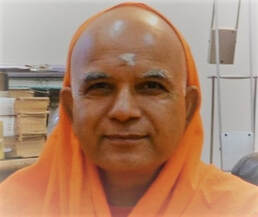
Swami Jnanananda Dr. Ashok Chhabra, Pennsylvania, USA - is a licensed psychologist licensed to practice psychology in the states of New York, Pennsylvania, and Florida under his purva ashrama name Dr. Ashok Chhabra. He holds a PsyD in Clinical Psychology and an MA in Counseling. He has worked as a licensed psychologist in a New York state hospital, Pennsylvania state correctional centers and in outpatient clinical agencies. He has worked both with adults as well as with children. Swamiji completed a two and one-half year course in Vedanta with Pujya Swami Dayanandaji at Piercy, California. His therapy and counseling approaches combine both Vedanta wisdom and modern therapeutic and counseling techniques. Swamiji is a resident acharya at the Arsha Vidya Gurukulam, where he conducts meditation workshops. He also provides complimentary psychological services to the general public at the gurukulam.
Topic: Vedanta and Psychology in Healing the Mind
Abstract: In Vedanta, the nature of the self is existence, awareness, and fullness (limitlessness, happiness). This limitless consciousness when identified with one body it is called an individual, jiva and when it identifies with the whole creation it is called the Lord, Ishvara. The body, mind and the senses are the instruments through which an individual transacts with the world. However, the individual does not consider them as his/her instruments, but rather, identifies with them due to ignorance of one's real nature. And because of this, experiences the problems of these instruments as one's own problems. According to Vedanta, the Lord himself is in the form of the entire universe including all universal laws and orders. This includes the Law of Karma. It means all the actions done by a person right or wrong must produce results. A human being is a social being. The interactions between individuals are unavoidable. Individuals have different needs and the fulfillment of these needs also impacts others’ needs. When the needs are very strong, then the person's judgments become cloudy and the person does not mind doing wrong actions to accomplish these needs. This hurts other people. The victims get traumatized and experience emotions of hurt, shame, anger, depression, anxiety, fear, helplessness etc. When these emotions become extreme and start interfering with the normal living of a person, then healing is required for one's mental health. Vedanta brings in spirituality to heal a person's emotional pain. First of all, because of the Law of Karma, there is an emotional comfort in the assurance that the aggressor will not get away from the universal law, even though he or she may get away from the local laws. Secondly, the Lord being all the laws, these laws are invoked to help the individual by prescribing certain Vedic rituals, prayers in the form of religious mantras, and meditations. In guided meditations, the person is guided to be in touch with one's own real nature which is all peace. This introduces the person to a lasting source of healing. The individual also learns to observe the mind and observes the thoughts and emotions floating in one's awareness, thus reducing the pain through non-identification with these painful memories and emotions. In psychotherapy, a person heals when a non-judgmental therapist actively listens with compassion, acknowledges the pain the person is going through and empathize with him or her. This itself is healing. Further techniques are used to explore the sources of pain and the client's schemas, irrational belief-systems etc. There are several different types of therapy modalities. A therapist chooses one or more modalities depending upon the client's issues and the therapist's training.
Topic: Vedanta and Psychology in Healing the Mind
Abstract: In Vedanta, the nature of the self is existence, awareness, and fullness (limitlessness, happiness). This limitless consciousness when identified with one body it is called an individual, jiva and when it identifies with the whole creation it is called the Lord, Ishvara. The body, mind and the senses are the instruments through which an individual transacts with the world. However, the individual does not consider them as his/her instruments, but rather, identifies with them due to ignorance of one's real nature. And because of this, experiences the problems of these instruments as one's own problems. According to Vedanta, the Lord himself is in the form of the entire universe including all universal laws and orders. This includes the Law of Karma. It means all the actions done by a person right or wrong must produce results. A human being is a social being. The interactions between individuals are unavoidable. Individuals have different needs and the fulfillment of these needs also impacts others’ needs. When the needs are very strong, then the person's judgments become cloudy and the person does not mind doing wrong actions to accomplish these needs. This hurts other people. The victims get traumatized and experience emotions of hurt, shame, anger, depression, anxiety, fear, helplessness etc. When these emotions become extreme and start interfering with the normal living of a person, then healing is required for one's mental health. Vedanta brings in spirituality to heal a person's emotional pain. First of all, because of the Law of Karma, there is an emotional comfort in the assurance that the aggressor will not get away from the universal law, even though he or she may get away from the local laws. Secondly, the Lord being all the laws, these laws are invoked to help the individual by prescribing certain Vedic rituals, prayers in the form of religious mantras, and meditations. In guided meditations, the person is guided to be in touch with one's own real nature which is all peace. This introduces the person to a lasting source of healing. The individual also learns to observe the mind and observes the thoughts and emotions floating in one's awareness, thus reducing the pain through non-identification with these painful memories and emotions. In psychotherapy, a person heals when a non-judgmental therapist actively listens with compassion, acknowledges the pain the person is going through and empathize with him or her. This itself is healing. Further techniques are used to explore the sources of pain and the client's schemas, irrational belief-systems etc. There are several different types of therapy modalities. A therapist chooses one or more modalities depending upon the client's issues and the therapist's training.
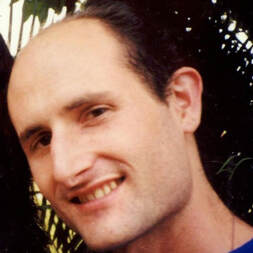
Aaron Stengel, RAP, Virigina, USA - is an Ayurvedic teacher and practitioner with 20 years of experience in Ayurveda, yoga, meditation and the healing arts. Aaron studied Ayurveda with Dr. Vasant Lad from 1996 to 2000. He founded the company Ayurveda posters in 2005, which is dedicated to combining the arts and Ayurveda for teaching and learning purposes.
Topic: Koshas
Abstract: Detailed discussion of the five koshas and how they relate to the conscious, sub-conscious, unconscious and super conscious layers of the mind as well as which techniques and practices can purify and benefit each Kosha.
Topic: Koshas
Abstract: Detailed discussion of the five koshas and how they relate to the conscious, sub-conscious, unconscious and super conscious layers of the mind as well as which techniques and practices can purify and benefit each Kosha.
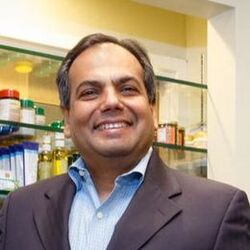
Amitabh Gumman, BAMS, MPH, DAc. PhD, Oklahoma, USA - Doctor of Medicine - University of Health Sciences Antigua, School of Medicine, Antigua, West Indies.; Master of Public Health, Health Promotion Sciences - University of Oklahoma Health Sciences Center, Oklahoma City, Oklahoma. Doctorate of Acupuncture & Doctor of Philosophy
The Open International University of Complimentary Medicines (OIUCM), Colombo, Sri Lanka. OIUCM was established in conformance with the 1962 Alma Ata Declaration of the World Health Organization. Yoga Instructor Certificate from the Government Vemana Yoga Research Institute, Hyderabad, India. Bachelor of Ayurvedic Medicine and Surgery - Government Ayurvedic Medical College, Osmania University, Hyderabad, India, a 5 1/2 years program in Indian and Western Medicine and Surgery. Diploma in Naturopathy, Gandhi Nature Cure College, Osmania University and Indian Institute of Naturopathy, India.
Topic: Ayurvedic Herbs for Mind
Abstract:
The Open International University of Complimentary Medicines (OIUCM), Colombo, Sri Lanka. OIUCM was established in conformance with the 1962 Alma Ata Declaration of the World Health Organization. Yoga Instructor Certificate from the Government Vemana Yoga Research Institute, Hyderabad, India. Bachelor of Ayurvedic Medicine and Surgery - Government Ayurvedic Medical College, Osmania University, Hyderabad, India, a 5 1/2 years program in Indian and Western Medicine and Surgery. Diploma in Naturopathy, Gandhi Nature Cure College, Osmania University and Indian Institute of Naturopathy, India.
Topic: Ayurvedic Herbs for Mind
Abstract:
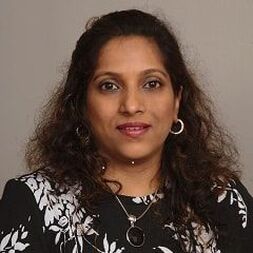
Anjum Nadaf, BAMS, RAD, YICC, New Jersey, USA - is a highly accomplished Vaidya in the USA. She is having more than 15 plus years of experience in the field of Ayurveda. She received her bachelor’s degree in Ayurvedic medicines and surgery after completing five and a half years of training from Bangalore University in 2004. She is a specialist in Panchakarma (Physical and Mental Purification Therapy. She has completed her yoga and meditation teacher training program from Swami Vivekananda Yoga and Anusandhana Samsthana in 2005. She is a Registered Ayurvedic Practioner (RAP) from AAPNA since 2016 and she is registered as Ayurvedic Doctor (AD) from NAMA since 2016. She is dedicated to spreading the ancient wisdom of this science of life to the world keeping it truly traditional and authentic. Her unique approach to health integrates the ancient wisdom of Ayurveda, Marma (energy points), Acupressure, Naturopathic cleansing, detoxifying healing and relaxation through yoga & meditation makes her stand out. Anjum is currently focused on improving ways to take this ancient traditional practice to the world, with a vision to enhance and enrich health and wellness. She is passionate about Ayurveda and believes that the health problems in today’s busy life can definitely seek healing answers in Ayurveda. Currently, she is working with Sumitra remedies located in Edison, New Jersey.
Topic: Ayurvedic Remedies for Insomnia-Balancing Insufficient Sleep
Abstract: Insomnia (or sleeplessness) is defined as the subjective perception of difficulty with sleep initiation, duration, consolidation, or quality that occurs despite adequate opportunity for sleep, and that results in some form of daytime impairment. The disease has a major impact on a person's productivity and quality of life. Insomnia is a condition in itself, but can also be a symptom of various systemic disorders and psychological. Insomnia in Sanskrit it is termed Nidra-Nasha' or Anidrata. Whether you have difficulty falling asleep or staying asleep, sleep loss feels maddening and debilitating, and it feels like sound sleep is out of reach with each restless night.
Topic: Ayurvedic Remedies for Insomnia-Balancing Insufficient Sleep
Abstract: Insomnia (or sleeplessness) is defined as the subjective perception of difficulty with sleep initiation, duration, consolidation, or quality that occurs despite adequate opportunity for sleep, and that results in some form of daytime impairment. The disease has a major impact on a person's productivity and quality of life. Insomnia is a condition in itself, but can also be a symptom of various systemic disorders and psychological. Insomnia in Sanskrit it is termed Nidra-Nasha' or Anidrata. Whether you have difficulty falling asleep or staying asleep, sleep loss feels maddening and debilitating, and it feels like sound sleep is out of reach with each restless night.
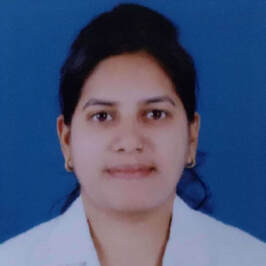
Deepti Kumar, BAMS, MD-Ayu, Mumbai, India - is an Ayurvedic practitioner from Mumbai, Maharashtra, India, and has specialized in Rog Nidana and Vikriti Vigyan from a renowned Ayurvedic College in Mumbai. She has worked as Senior Research Fellow under Central Ayurveda Research in Cancer, Mumbai a part of CCRAS, New Delhi as Project Assistant for Pharmacovigilance of ASU & H Drugs and Reproductive and Child Health Care- SCSP Project, India.
Topic: Role of Mind in manifestation of disease
Abstract: A healthy body is not just a body free from visible disease but a body with a happy mind too. Who has also defined health as, "State of complete physical, mental, and social well being, and not merely the absence of disease or infirmity." In Ayurveda, disease has been described to originate either from Invasion and injury by foreign bodies, Mental or Vitiation of the three doshas. Therefore, it is important to understand the pathophysiology of Mind over the body and its presentation as described in Ayurveda to restore the health and improve the Quality of Life of an individual.
Topic: Role of Mind in manifestation of disease
Abstract: A healthy body is not just a body free from visible disease but a body with a happy mind too. Who has also defined health as, "State of complete physical, mental, and social well being, and not merely the absence of disease or infirmity." In Ayurveda, disease has been described to originate either from Invasion and injury by foreign bodies, Mental or Vitiation of the three doshas. Therefore, it is important to understand the pathophysiology of Mind over the body and its presentation as described in Ayurveda to restore the health and improve the Quality of Life of an individual.
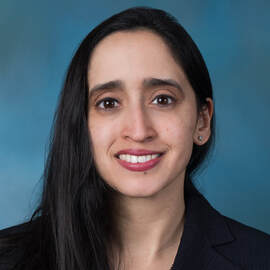
Divya Selvakumar, PhD, RD, RAFNC, Maryland, USA is a nutrition specialist, professor, registered dietitian and consultant from California, USA with 18 years of experience in child nutrition, prenatal nutrition, general nutrition, and HIV/AIDS nutrition. Her experiences are noted in international development, academia and global nutrition. Dr. Divya is hold Registered Dietitian licenses in Maryland and the District of Columbia. Divya is also trained in the fields of program management, program development, research, field trainings, and materials/publication design. As part of her international travels, she has lived in Kuwait, India, Tanzania, and in the United States. Divya is currently the founder of a small international charity organization, American Hindu World Service (AHWS), and a budding business, Divine Diets.
Topic: Emotional Eating Disorders
Abstract: I will be presenting a topic based upon an Ayurvedic perspective and intervention on why people turn to food as a way to cope during traumatic and difficult times in their lives. Emotional eating disorders will be explored.
Topic: Emotional Eating Disorders
Abstract: I will be presenting a topic based upon an Ayurvedic perspective and intervention on why people turn to food as a way to cope during traumatic and difficult times in their lives. Emotional eating disorders will be explored.
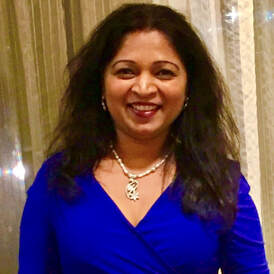
Jaya Daptardar, BAMS, RAD, MHA, Connecticut, USA- For the past 20 years, she has led clients to health and healing by sharing the transformative power of Ayurveda in her seminars and workshops. In addition to being the founder and CEO and founder of Active Ayurveda and Yoga, LLC and she works as a Chief Operating Officer of a substance abuse and mental health company in CT. She is a writer of books: “Aging Gracefully” and “Ayurveda’s Wisdom for management of Pain and Addiction”.
Topic: Healing Power Of Ayurveda for Addiction
Abstract: Ayurveda considers addiction as an “intoxication” condition due to the higher use of alcohol or other substances that are intoxicating. According to Ayurveda alcohol or drug is a complete opposite of “Ojas” (High source of energy). “Ojas” is a required part for healthy person. Alcohol diminishes the “Ojas” (High source of energy) shows the symptoms of intoxication. There are four stages of addiction: Acute intoxication, withdrawal symptoms, drug dependence and drug abuse. Therapies of Ayurveda are used after 8 to 12 weeks of sobriety in chronic cases. Ayurvedic therapies can be used as an additional help at any time. It is very important to consult with your Ayurvedic specialist at every step of the therapies.
Topic: Healing Power Of Ayurveda for Addiction
Abstract: Ayurveda considers addiction as an “intoxication” condition due to the higher use of alcohol or other substances that are intoxicating. According to Ayurveda alcohol or drug is a complete opposite of “Ojas” (High source of energy). “Ojas” is a required part for healthy person. Alcohol diminishes the “Ojas” (High source of energy) shows the symptoms of intoxication. There are four stages of addiction: Acute intoxication, withdrawal symptoms, drug dependence and drug abuse. Therapies of Ayurveda are used after 8 to 12 weeks of sobriety in chronic cases. Ayurvedic therapies can be used as an additional help at any time. It is very important to consult with your Ayurvedic specialist at every step of the therapies.
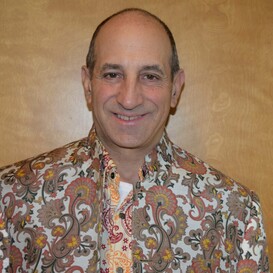
Jeffrey Meyers, MD, LAc, Delaware, USA - is a physician, acupuncturist, teacher, and artist with an extensive background in holistic approaches to healing, the arts, and spirituality. He received his undergraduate degree from the University of Pennsylvania and his Doctorate in Medicine from the University of Colorado. For many years he served as Medical Director of Delaware Curative Physical Therapy and Rehabilitation Centers and currently has a private medical practice specializing in musculo-skeletal medicine and pain management that integrates acupuncture, yoga, somatic techniques, and meditation. He was co-director of Dharma Mittra’s “Life of a Yogi” Teacher Training and is the director of the International Yoga “Master Teacher” Training. He received a Certificate in Psychedelic Therapies and Research from the California Institute of Integral Studies and completed the Ketamine-Assisted Psychotherapy Training at Orenda Institute. For the past 25 years he has led seminars and classes that explore the relationship of consciousness to the arts, sciences, and spirituality. Jeffrey S. “KD” Meyers, M.D., L. Ac. is a physician, acupuncturist, yoga teacher, and artist with an extensive background in holistic approaches to healing, the arts, and spirituality. His path as a healer and artist began in the 1980’s as a student of holistic medicine and spirituality in Colorado and New Mexico. He received his Doctor of Medicine degree from the University of Colorado School of Medicine and has practiced Western and Integrative medicine for over 20 years. He was co-director of Dharma Mittra’s “Life of a Yogi” Teacher Training and is the director of the International Yoga “Master Teacher” Training. Jeffrey S. Meyers, M.D., L. Ac. is a physician, acupuncturist, yoga teacher, and artist with an extensive background in holistic approaches to healing, the arts, and spirituality. His path as a healer and artist began in the 1980’s as a student of holistic medicine and spirituality in Colorado and New Mexico. He received his Doctor of Medicine degree from the University of Colorado School of Medicine and has practiced Western and Integrative medicine for over 20 years. He was co-director of Dharma Mittra’s “Life of a Yogi” Teacher Training and is the director of the International Yoga “Master Teacher” Training. In 2010 he was graced with the blessings of the Divine Mother who gifted him with the spiritually healing power of her song. He receives and offers transmissions in a number of lineages.
Topic: Constitutional Analysis (Diagnosis) of Mind
Topic: Constitutional Analysis (Diagnosis) of Mind
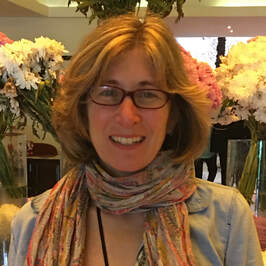
Jody Smith Long, MEd, Pennsylvania, USA - is an artist, educator, and healer. She teaches mindfulness meditation to high school students in the Philadelphia Public School system through The Inner Strength Foundation. Jody earned a BFA from University of Michigan Stamps School of Art, an MAT from University of the Arts, completed mindfulness and meditation teacher training through Emergence Education founders Jeff Carreira and Amy Edelstein, is trained in many hands on healing modalities including Reiki, Quantum Touch, CranioSacral Therapy, and Psych-K, and is a Family Constellations facilitator trained by Suzi Tucker.
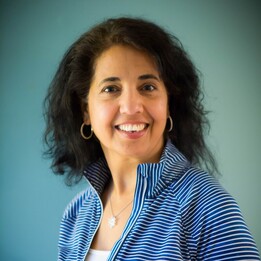
Meena Puri, RAP, CPA, Michigan, USA is the founder of Ayurvedic Healing Center LLC and brings over 35 years of combines Yoga and Ayurveda experience to her practice. She comes from a lineage of Ayurvedic Doctors and her dedication to helping others is inspired by her father, Dr. C. R. Puri and her conviction that you CAN heal is fueled by her own life’s experiences. She is an ambassador and practitioner member of AAPNA, and an author of #1 Best Seller “Healing Your Relationship with Food: The Ayurveda Answer. She delivers confidence, inspiration and practical tools for her clients so they CAN take necessary steps to resolve their health issues regardless of how complex they may seem. Her belief is that you can heal from anything and she holds that belief for her clients even when they don’t. In her spare time, she enjoys dancing, singing, anything outdoors and being a mom.
Topic: Mind and Energy
Abstract: Behind the highly complex mental structures and patterns are the energies waiting to be freed.
There are 2 key concepts that we must understand before applying the technique to free these energies. First key concept is that energy can neither be created nor destroyed but can only be transmuted which extends this understanding to the second concept that our current life is a continuum of all the lifetimes we have lived and our current experiences are representations of the energies we have created in prior lifetimes and not transmuted. We use the A technique to free these energies into the One Flow of Love. What we have before us is a tremendous opportunity to heal all the past energies and Karma in this lifetime. The process of freeing these energies is our journey to Wholeness and to be a full spectrum or 5th dimensional being.
Topic: Mind and Energy
Abstract: Behind the highly complex mental structures and patterns are the energies waiting to be freed.
There are 2 key concepts that we must understand before applying the technique to free these energies. First key concept is that energy can neither be created nor destroyed but can only be transmuted which extends this understanding to the second concept that our current life is a continuum of all the lifetimes we have lived and our current experiences are representations of the energies we have created in prior lifetimes and not transmuted. We use the A technique to free these energies into the One Flow of Love. What we have before us is a tremendous opportunity to heal all the past energies and Karma in this lifetime. The process of freeing these energies is our journey to Wholeness and to be a full spectrum or 5th dimensional being.

Nidhi Pandya, RAP, New Jersey, USA - Raised in Mumbai by my grandfather who was an Ayurvedic Healer, the principles of Ayurveda are deeply etched in my psyche. They have become and intuitive and natural part of my lifestyle. I started studying some of the Eastern Shashtras or texts at a young age and have continued to study Ayurveda formally from the ancient texts of Carak Samhita and Ashtang Hrudayam at Shubham Ayurveda. Having developed a deep understanding of the authentic principles, I seek to apply them to our modern day lifestyle, food and diseases. I currently practice as an Ayurvedic Practitioner in Mumbai, New York and New Jersey. I also write for the Ayurveda and Health Tourism Magazine, a leading International Ayurveda Magazine I also conduct Ayurveda workshops around the world. I was a part of the International Committee at the AYUSH expo 2019. AYUSH is the ministry created by the Indian Govt. to protect and spread Ayurveda.
Topic: Mind and Digestion
Abstract: The state of the mind directly affects the digestion. Whether its the fight or flight mode that lowers enzyme production or bhaya-shoka that affect the gather agni - this presentation will cover the basic western and Ayurvedic understanding of how the Mind affects Digestion.
Topic: Mind and Digestion
Abstract: The state of the mind directly affects the digestion. Whether its the fight or flight mode that lowers enzyme production or bhaya-shoka that affect the gather agni - this presentation will cover the basic western and Ayurvedic understanding of how the Mind affects Digestion.
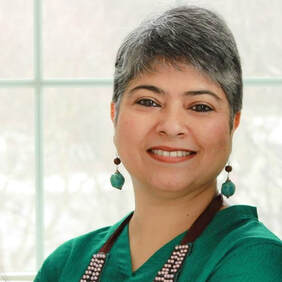
Pratibha Shah, BAMS, MD-Ayurved, MPH, Massachusetts, USA - is an internationally renowned Ayurveda expert. Intensely trained in Traditional Health Sciences (Ayurveda, Energy healing) as well as Public Health, Pratibha Shah distils Eastern wisdom with an understanding of Western principles, for the best care of her clients. A strong sense of compassion and empathy, intent listening skills, in-depth thorough assessments and well contemplated individualized Master Wellness plans are a hallmark of her 30 years of practice. Client-centric Compassionate Care defines her best. Her pioneering initiatives in the field of Ayurveda, have brought her to attention at the White House, the Department of Health and Human Services, as well as the Consulate General of India, NYC. For her work, she was also nominated in the Top 20 Women of the Year, for the year 2014. She is the Founder, President of two non-profits - Council for Ayurveda Research and Wholistic Health Alliance. She currently consults out of her office in Danvers and at Well Life Medical, a state of the art Integrative Medicine clinic near Boston, Massachusetts, USA. Before moving to the US, Shah was a Chief Medical Officer with the AYUSH ministry in India.
Topic: Ayurvedic psychotherapy with special focus on Sattvavajaya chikitsa
Abstract: Ayurveda describes life as a complex coming together of Body (Sarira), Senses (Indriyas), Mind (Sattva) and Soul (Atma). An imbalance in either of these can lead to disease. Definition of health in Ayurveda includes not just harmony in physical and physiological body but also a blissful state of the mind. Accordingly and appropriately so, Ayurveda adopts a psychosmatic as well as spiritual approach to well-being as well as disease alleviation. Ayurvedic psychotherapy is astonishingly well developed, intricate and layered. Vaidya Pratibha Shah will present some of the key principles of psychotherapy in Ayurveda with a special focus on Sattvavajaya chikitsa (reigning in of the Mind).
Topic: Ayurvedic psychotherapy with special focus on Sattvavajaya chikitsa
Abstract: Ayurveda describes life as a complex coming together of Body (Sarira), Senses (Indriyas), Mind (Sattva) and Soul (Atma). An imbalance in either of these can lead to disease. Definition of health in Ayurveda includes not just harmony in physical and physiological body but also a blissful state of the mind. Accordingly and appropriately so, Ayurveda adopts a psychosmatic as well as spiritual approach to well-being as well as disease alleviation. Ayurvedic psychotherapy is astonishingly well developed, intricate and layered. Vaidya Pratibha Shah will present some of the key principles of psychotherapy in Ayurveda with a special focus on Sattvavajaya chikitsa (reigning in of the Mind).
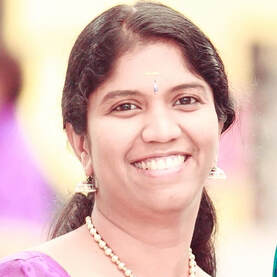
Priyaa Balamurugen, BAMS, MSc (Psy), LMT, DYN, RAD, New Jersey, USA - has been practicing Ayurveda in the US and India for the past eighteen years. She completed her (B.A.M.S) Bachelor of Ayurvedic Medicine & Surgery degree from Dr M.G.R Medical University, Tamilnadu, India. She has a graduate degree in Psychology from the University of Madras and a Diploma in Yoga & Naturopathy. She also studied Acupuncture in CBIATC, Beijing, China and trained in Dr.Vora's Acupressure. Priyaa's unique approach to health integrates the ancient wisdom of Ayurveda, marma, Acupressure, Siddha with naturopathic cleansing, healing and relaxation through yoga & meditation. She is affiliated to SKY (Master -Simplified Kundalini Yoga), New Jersey chapter, AAPNA ( Membership Director - Association of Ayurvedic Professionals of North America), WISE (Research Scientist -World Institute of Scientific Exploration).
Topic: Mind in Ayurveda and Vethathrium
Abstract: We will discuss the structure and function of the Mind according to Ayurveda, Yoga and Vethathirum. Understanding the basics of the Mind and its functions is the key to solve so many conflicts in the emotional, mental and physical planes of our being. Application of this knowledge in everyday practice is the first step towards living a fulfilling life. We will also discuss chitta, buddhi, manas, and ahamkara.
Topic: Mind in Ayurveda and Vethathrium
Abstract: We will discuss the structure and function of the Mind according to Ayurveda, Yoga and Vethathirum. Understanding the basics of the Mind and its functions is the key to solve so many conflicts in the emotional, mental and physical planes of our being. Application of this knowledge in everyday practice is the first step towards living a fulfilling life. We will also discuss chitta, buddhi, manas, and ahamkara.
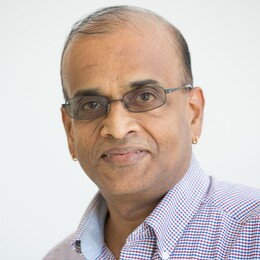
Ram Mohan Rao, PhD, CAS, RAP, California, USA - comes from a family of ayurvedic practitioners and Vedic teachers in India tracing back to the illustrious Vedic-Acharya Rishi Kaundinya. Ram completed the academic training at the California College of Ayurveda and presently teaches in their Nevada city location. Ram is a dedicated Hatha yoga practitioner and is a R.Y.T. from Yoga Alliance USA. Ram has published several articles in major Yoga/Ayurveda journals and recently was awarded the Vagbhata Award for Excellence in Ayurvedic Teaching by AAPNA. Ram holds a doctorate degree in Neurosciences and works as a Research Associate Professor at the Buck Institute for Age Research, Novato, CA, on various aspects of age associated neuro-degenerative diseases.
Topic: Understanding the Human Mind and Brain: Ayurvedic-chemistry of the Mental Body
Abstract: Despite all the technological advances, much about the human mind and its visible counterpart-the brain still remains a mystery. The Mind is the most complex structure in the universe and scientists still cannot completely explain how it functions. Cognition is a dynamic aspect of the Mind and includes thought process (medha), absorption of information (Dhee), information retention (Dhruti) and recall (smruti). Recent findings regarding the structure, function and physiology of the human mind and brain indicate that (a) mental process declines with age, (b) age-associated loss of cognition is not solely due to neuronal loss, (b) mental decline and brain aging are related to chemical changes in the nervous system and, (c) age-associated mental decline may be hastened or slowed by lifestyle practices. In this presentation which will be supported by peer reviewed research work, I will discuss about the (1) Nervous system, The Mind, Brain Aging, and Neurodegenerative diseases, (2) Factors that hasten or delay mental decline and brain aging, (3) Ayurvedic interpretation of the mind and nervous system and (4) therapeutics including Medhya Rasayanas and their role in rejuvenating the mind and brain.
Topic: Understanding the Human Mind and Brain: Ayurvedic-chemistry of the Mental Body
Abstract: Despite all the technological advances, much about the human mind and its visible counterpart-the brain still remains a mystery. The Mind is the most complex structure in the universe and scientists still cannot completely explain how it functions. Cognition is a dynamic aspect of the Mind and includes thought process (medha), absorption of information (Dhee), information retention (Dhruti) and recall (smruti). Recent findings regarding the structure, function and physiology of the human mind and brain indicate that (a) mental process declines with age, (b) age-associated loss of cognition is not solely due to neuronal loss, (b) mental decline and brain aging are related to chemical changes in the nervous system and, (c) age-associated mental decline may be hastened or slowed by lifestyle practices. In this presentation which will be supported by peer reviewed research work, I will discuss about the (1) Nervous system, The Mind, Brain Aging, and Neurodegenerative diseases, (2) Factors that hasten or delay mental decline and brain aging, (3) Ayurvedic interpretation of the mind and nervous system and (4) therapeutics including Medhya Rasayanas and their role in rejuvenating the mind and brain.
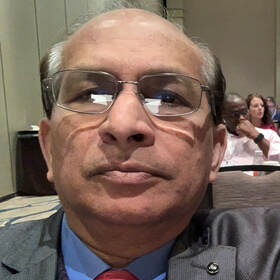
Ravi Tamarisa, MD, Texas, USA - graduated from Huntur Medical College in 1970 and came to USA in June 1972. I did anesthesia residency at Baylor medical college here and joined premier institute called St. Luke’s hospital in houston . I encounters several pain issues that made me train as pain specialist and start working in pain management since 2006 . That made me look at alternate medical modalities in dealing with chronic pain with severe underlying stress in more than third of the cases . Ayurveda offers ways of handling stress with yoga, meditation etc .
Topic: Stress Management
Topic: Stress Management
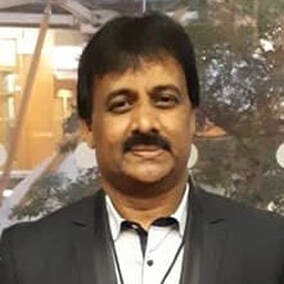
Suresh Swarnapuri, BAMS, MD-Ayurved, LMT, RAD, DAM, Cork City, Ireland - is an international ayurvedic specialist and expert, and a visiting consultant to Paris-France, Zagreb-Croatia and Dnepropetrovsk-Ukraine. He is a member of Croatian Ayurveda Association and member of GAP (Global Ayurveda Professionals) he has done 9-year Doctor of Ayurvedic Medicine program at Rajiv Gandhi Health University, Bangalore, India. Suresh Swarnapuri was a lecturer at IIAMR -Bangalore and later he served as Associate Professor at Sri Sri Ravishankar Ayurveda College & Research Institute at Bangalore For more than 10 years, he successfully conducted various Ayurveda, seminars and lectures in different countries in Europe,he visited and provided consultations to various countries that includes Germany, Holland, Russian, Serbia, Ukraine, Turkey, Lebanon and Montenegro. He received Atreya Award for Excellence in Ayurvedic Practice from the Association of Ayurvedic Professionals of North America in the year 2011 at Boston, U.S.A and later in 2013, he received Charaka award for excellence in Ayurveda teaching again from AAPNA at Las Vegas-U.S.A. He is presently coordinated with a french Ayurveda center -Ahimsa to form a Ayurveda school in Paris-France.
Topic: Exploring the Mind - Ayurvedic Approach
Abstract: Exploring the Mind is the topic which is very Relevant to Present days, as many Europeans suffer from mental issues related to their social Structure..i try to bring out from Ayurvedic science which deals about Mind,memory,Intellect and Consciousness, I will be connecting Remaining Mental Faculties to Consciousness and create awareness among the Public.All these will discussed during my Presentation.
Topic: Exploring the Mind - Ayurvedic Approach
Abstract: Exploring the Mind is the topic which is very Relevant to Present days, as many Europeans suffer from mental issues related to their social Structure..i try to bring out from Ayurvedic science which deals about Mind,memory,Intellect and Consciousness, I will be connecting Remaining Mental Faculties to Consciousness and create awareness among the Public.All these will discussed during my Presentation.
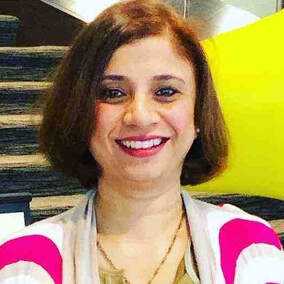
Sweta Vikra, RALC, New York, USA - is an international speaker, best-selling author, and Ayurveda and mindset coach who is committed to helping people thrive on their own terms. As a trusted source on health and wellness, most recently appearing on NBC and Radio Lifeforce, Sweta has dedicated her career to writing about and teaching a more holistic approach to creativity, productivity, health, and nutrition. Voted as “One of the Most Influential Asians of Our Times” and winner of the “Voices of the Year” award (past recipients have been Chelsea Clinton), she lives in New York City with her husband and works with clients across the globe.
Topic: Emotional Health & Wellbeing
Abstract: I understand the unique challenges you face as a human being, employee, employer, entrepreneur, provider, parent, and partner. I have worked in the corporate world. I am an entrepreneur. I am a writer. I am a wife. I have fallen seriously ill. I have recovered. What I’m saying is that I appreciate fully well how demanding and unpredictable life can be. I first-hand know what can happen when you neglect your health and wellness. You could lose your next paycheck or the next promotion. Your loved ones. Your marriage. Your sanity. Your sense of self. Many people believe that sleep deprivation, erratic lifestyle, long hours at work is key to success and growth. In this session, I will break stereotypes and change mindsets using Ayurveda around: 1. Time Management 2. Sleep 3. Nutrition 4. Lifestyle 5. Movement/Exercise
Topic: Emotional Health & Wellbeing
Abstract: I understand the unique challenges you face as a human being, employee, employer, entrepreneur, provider, parent, and partner. I have worked in the corporate world. I am an entrepreneur. I am a writer. I am a wife. I have fallen seriously ill. I have recovered. What I’m saying is that I appreciate fully well how demanding and unpredictable life can be. I first-hand know what can happen when you neglect your health and wellness. You could lose your next paycheck or the next promotion. Your loved ones. Your marriage. Your sanity. Your sense of self. Many people believe that sleep deprivation, erratic lifestyle, long hours at work is key to success and growth. In this session, I will break stereotypes and change mindsets using Ayurveda around: 1. Time Management 2. Sleep 3. Nutrition 4. Lifestyle 5. Movement/Exercise
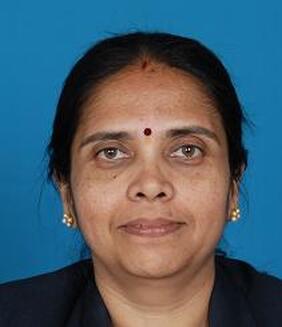
Yogini Patil, BAMS, MD-Ayurved, MA (Sanskrit), Pune, India, - completed her B.A.M.S.University of Pune (University Topper), B.A. (Sanskrit) Tilak Maharashtra Vidyapeeth, Pune, M.D. (Rasa-Shastra & Bhaishajya Kalpana) Gujarat Ayurveda University, Jamnagar (University Topper), M.A. (Sanskrit Vedanta) Tilak Maharashtra Vidyapeeth, Pune, M.S. (Clinical Psychotherapy), IBMS, Chittoor, Andhra Pradesh, India. Her teaching experience for 25 years (for Undergraduate and Postgraduate students of Ayurveda) Research guide for post graduate students in ayurveda, public talks for common people, training workshops for foreigners. Her clinical Experience includes - 2 years IPGT& R, Jamnagar, Private Practice in Pune – 1992-1995, X-Ray Department, Tarachand Hospital (approx. 1 year), Swasthya Rakshan OPD (approx. 5 years). Present Designation as an Associate Professor, Rasashastra Department, Tilak Ayurveda Mahavidyalaya, Pune, India, Consultant, Wellness OPD – Seth Tarachand Ramnath Trust Hospital, Pune, Committee Member – Research Committee, TAMV, Pune
Committee Member – Workshops, Seminars, Guest Lectures committee, TAMV, Pune, Co-ordinator – II BAMS – Internal Assessment Examinations, TAMV, Pune. She has received various Awards and recognition, worked in Literary Research Project- Lakshana Kosha ( Encyclopedia of Ayurveda), more than 40 articles published in National and International journals.
Topic: Manahswasthya: Wellness of Mind
Abstract: Manasa prakruti and vikruti , Sattva-sarata, Sadvrutta , Assessment of mental functioning. Ayurveda, the divine science and art of life, deals with all aspects of human well being. It is not meant for just health and fitness, but it is an ultimate solution for every aspect of human existence. Man is a unique creation on this planet due to his evolved state for which the mind possesses major role. To present a narrative review of classical references about the mind, its nature, (Physiology and Pathology of mental functioning), Assessment of Manasa Prakruti, causes of diseases of Mind, Treatment and attainment of Wellness of mind. Sub-Topics will be discussed in the presentation-Importance of Dharaniya Vega (Self-control on emotions), Sadvrutta (Code of conduct) and aachara rasayana. Mind-Body relationship, Upward Journey from normal mind to pure and pious mind to No mind state and attainment of liberation- Ayurvedic perspective.
Committee Member – Workshops, Seminars, Guest Lectures committee, TAMV, Pune, Co-ordinator – II BAMS – Internal Assessment Examinations, TAMV, Pune. She has received various Awards and recognition, worked in Literary Research Project- Lakshana Kosha ( Encyclopedia of Ayurveda), more than 40 articles published in National and International journals.
Topic: Manahswasthya: Wellness of Mind
Abstract: Manasa prakruti and vikruti , Sattva-sarata, Sadvrutta , Assessment of mental functioning. Ayurveda, the divine science and art of life, deals with all aspects of human well being. It is not meant for just health and fitness, but it is an ultimate solution for every aspect of human existence. Man is a unique creation on this planet due to his evolved state for which the mind possesses major role. To present a narrative review of classical references about the mind, its nature, (Physiology and Pathology of mental functioning), Assessment of Manasa Prakruti, causes of diseases of Mind, Treatment and attainment of Wellness of mind. Sub-Topics will be discussed in the presentation-Importance of Dharaniya Vega (Self-control on emotions), Sadvrutta (Code of conduct) and aachara rasayana. Mind-Body relationship, Upward Journey from normal mind to pure and pious mind to No mind state and attainment of liberation- Ayurvedic perspective.
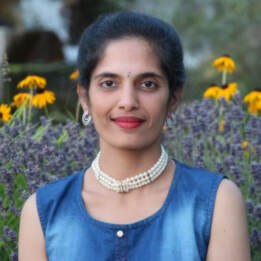
Manju Gutta Kolli, MS, CAP, RPh, has been working as a Clinical Pharmacist in a long-term Care Pharmacy for over 13 years; having had a successful career and having taken on multiple roles at work from being a clinical pharmacist to supervisor the quest for real health care was always persistent and this is because of the blinding shortcomings she has seen with current medical care. When asked about the same question the answer she received was "what else would you expect in this corporate world?" That answer never satisfied her and the quest continued. She always believed nature truly gifts us with whatever we ask for whole-heartedly and it indeed showed her a path toward Ayurveda. She also has deep rooted spiritual practice that helped her come closer to the quest of holistic way to heal. Initially she just wanted to do a diploma to help her family and never thought she would switch careers to pursue Ayurveda full time having had a fulfilling career and 2 kids. However she received classical Ayurvedic practitioner certificate through Shubham Ayurveda in Fremont and started a clinic in Fremont, CA with great success.
Topic: Effect of Sharira Doshas on Mind
Abstract: Our Mind and body are very much connected. The 3 dosas that rule our body also has impact on our mind. It is very much important to balance them to bring a balance in mind. In today's discussion let us explore the connection between mind and body and how to bring a balance in the most tangible body and thus bring balance in the mind.
Topic: Effect of Sharira Doshas on Mind
Abstract: Our Mind and body are very much connected. The 3 dosas that rule our body also has impact on our mind. It is very much important to balance them to bring a balance in mind. In today's discussion let us explore the connection between mind and body and how to bring a balance in the most tangible body and thus bring balance in the mind.
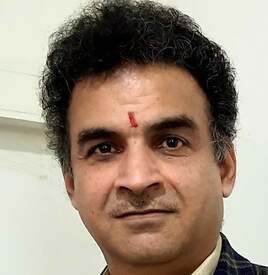
Sudhir Bhola, Haryana, India is an Ayurvedic Sexologist with an experience of 21 years in these fields. Sudhir Bhola practices at Curewell Therapies in Sultanpur, Delhi and DLF phase 2 Gurgaon, Rajouri Garden and Shalimar Bagh. Started assisting his father, Dr. H. L. Bhola at his clinic at the age of just 18 years while pursuing studies. He is a member of European Society for Sexual Medicine, NAMA (National Ayurveda Medical Association, USA), International Society of Sexual Medicine, The American College of Sexologists. He has been awarded "Rashtriya Swasthya Rakshak Gaurav Samman" in the year 2014 for his contribution towards serving society by giving free treatments. Recently awarded " World's Greatest Leaders 2016-17". He won the best sexologist of India award in 2019.
Topic: Ayurveda and the Mind for Sexual Health
Abstract: I would like to explain to the audience, about the impact of ayurveda on our mind and how our sexual health is benefited with the same.
Topic: Ayurveda and the Mind for Sexual Health
Abstract: I would like to explain to the audience, about the impact of ayurveda on our mind and how our sexual health is benefited with the same.
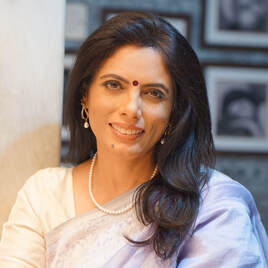
Smita Naram, Ayurveda Uttama, Mumbai, India a successful Ayurvedic practitioner for past 32 years has helped more than half a million people across the world suffering from numerous chronic health disorders like Arthritis, Joint pain, Sciatica, osteoporosis, Anxiety, Depression, Diabetes, Obesity, Infertility, heavy breathlessness, IBS, female health concerns like PCOD, Fibroid, Tube blocks, Menstrual problems, High Blood Pressure, Skin problems like Psoriasis, Eczema, Vision, childhood issues, loss of memory, and many more chronic health concerns. A co-founder of Ayushakti Health center with more than 100 centers in Europe, USA, Australia, Russia, New Zealand, London, India., she is an international presenter, author and researcher. She also teaches pulse reading internationally and is a specialist in Detox Panchakarma (An ancient skill of detoxifying and rejuvenating the body, mind and emotions). She has been honored worldwide with many prestigious awards for her contributions. She gives consultations and lectures at various centre points throughout the world.
Topic: Detox & Nourish - Key to renew. How by following ayurvedic panchakarma detox followed by Rasayana reverses joints degeneration
Abstract: A story of 68 year old male with Early-stage Osteoarthritis of both knees (Sandhigata Vata), accompanied by reduced medial joint spaces bilaterally, marginal osteophytes, Tibia spiking,and Patellar breaking. When the patient was 65 years old, they developed pain in the right knee, at the age of 65.6 years in the left knee. At the age of around 66 years, he had an X-ray with a diagnosis early-stage osteoarthritis. Therefore the patient took NSAIDs and received conservative treatment and Physiotherapy. However, knee pain increases progressively along with weight; on the other hand, his daily living activities stared decreasing with age. At the age of 68 years, this patient visited Ayushakti Ayurveda Pvt Ltd outdoor unit in Thane, Mumbai, Maharashtra, India branch with a complaint of both knee pain while walking and climbing. The patient got his self-reported visual analog scale (VAS) pain score in-between 8 and 9. On clinical examination, both knees showed mild detectable effusion. As per clinical symptoms and X-ray reporting patient diagnosed as having Osteoarthritis of both knee joints. The patient was convinced to undergo Advance Virechana (Arthrox),Knee Dhara, Yogbasti, and Herbal formulations for 20 days,
Topic: Detox & Nourish - Key to renew. How by following ayurvedic panchakarma detox followed by Rasayana reverses joints degeneration
Abstract: A story of 68 year old male with Early-stage Osteoarthritis of both knees (Sandhigata Vata), accompanied by reduced medial joint spaces bilaterally, marginal osteophytes, Tibia spiking,and Patellar breaking. When the patient was 65 years old, they developed pain in the right knee, at the age of 65.6 years in the left knee. At the age of around 66 years, he had an X-ray with a diagnosis early-stage osteoarthritis. Therefore the patient took NSAIDs and received conservative treatment and Physiotherapy. However, knee pain increases progressively along with weight; on the other hand, his daily living activities stared decreasing with age. At the age of 68 years, this patient visited Ayushakti Ayurveda Pvt Ltd outdoor unit in Thane, Mumbai, Maharashtra, India branch with a complaint of both knee pain while walking and climbing. The patient got his self-reported visual analog scale (VAS) pain score in-between 8 and 9. On clinical examination, both knees showed mild detectable effusion. As per clinical symptoms and X-ray reporting patient diagnosed as having Osteoarthritis of both knee joints. The patient was convinced to undergo Advance Virechana (Arthrox),Knee Dhara, Yogbasti, and Herbal formulations for 20 days,

Sarah Vanis - Advanced Diploma of Ayurveda, Diploma of Ayurveda Yoga Teacher, DipEd, BSocSC (YWk). DipComWelf, DipCommDev, DipCommYWk, DipVisArt, Cert IV TAE, Chef, Australia - Sarah is a qualified Chef, Yoga Teacher, Teacher, Counselor and Ayurveda Practitioner. Sarah brings over 20 years experience in food, health and education to help others restore health naturally teaching regular yoga classes, providing lectures in Ayurveda and personal consul tat ions in yoga and Ayurveda therapy. Sarah is the course owner of the
Diploma of Ayurveda Yoga Teaching and Principal of Aligning Health’s nationally accredited Ayurveda qualifications. Sarah is also owner of the Aligning Health Wellness Retreat offering bed and breakfast and traditional healing programs and is author of Food Hurts – Healing Anorexia Nervosa with Yoga and Ayurveda.
Topic: Practical Application of Ayurveda and the Mind
Abstract: The theory of Ayurveda provides a framework to support both the body and the mind. What does this look like in Practice? Join Sarah in a discussion about Ayurveda psychology with an insightful application of supporting the mental health of clients- from addiction to early prevention - Ayurveda has the tools.
Diploma of Ayurveda Yoga Teaching and Principal of Aligning Health’s nationally accredited Ayurveda qualifications. Sarah is also owner of the Aligning Health Wellness Retreat offering bed and breakfast and traditional healing programs and is author of Food Hurts – Healing Anorexia Nervosa with Yoga and Ayurveda.
Topic: Practical Application of Ayurveda and the Mind
Abstract: The theory of Ayurveda provides a framework to support both the body and the mind. What does this look like in Practice? Join Sarah in a discussion about Ayurveda psychology with an insightful application of supporting the mental health of clients- from addiction to early prevention - Ayurveda has the tools.
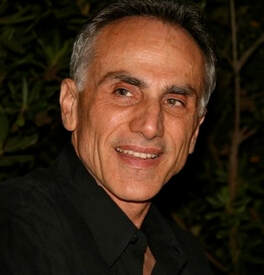
Michael Mastro, BA, RVC, California, USA - Vastu (Indian Feng Shui) consultant reducing environmental stress that affects business success and nutritional support. Michael Mastro is North America’s leading expert of Vastu for over 40 years and has used Vastu for his clients worldwide to align their home and workspaces. He designed and built the first Microsoft building and many buildings for The Boeing Company employing the principles of Vastu. Corporate clients include The World Bank, NASA, Oracle, Microsoft, Amazon, Boeing and Intel. Michael has been a teacher of yoga and meditation techniques since 1970. He has also co-authored three award-winning books on Vastu:Altars of Power and Grace(Balanced Books Publishing), The Way of Vastu(Balanced Books Publishing), and Making Room for Mr. Right(Simon & Shuster/Atria). Michael teaches courses in Vastu at the Chopra Center and Bastyr University. In 2015, he presented Vastu on the Doctor Oz Show and co-authors articles on the Doctor Oz Expert site. This year, Michael was named one of the Top 100 Trailblazers in Yoga and Ayurveda in the World by Spirituality and Health Magazine.
Topic: Vedic Medical Astrology and the Mind
Abstract: Using Vedic Medical astrology to diagnose and provide for remedies that balance the 5 elements and dosas for any mental issues
Topic: Vedic Medical Astrology and the Mind
Abstract: Using Vedic Medical astrology to diagnose and provide for remedies that balance the 5 elements and dosas for any mental issues
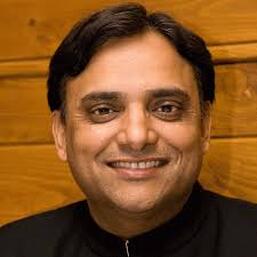
Partap Chauhan, BAMS, New Delhi, India - is a pioneer of Ayurvedic telemedicine. He started the world’s first Ayurvedic website, jiva.com, in 1995, and was the first to give online consultations to people throughout the world. Partap is the only Ayurvedic doctor to have won the prestigious World Summit Award given by the United Nations Organization, Geneva, for his Teledoc project designed to help rural populations using technology. For his social entrepreneurial skills, he has been selected a lifetime Ashoka Fellow by the Ashoka Foundation, USA. He is the founder of Jiva Ayurveda, which runs a network of 60 clinics in India and offers online, telephonic, and personal consultations to patients worldwide. Partap has written several books on Ayurveda, including Eternal Health: The Essence of Ayurveda, and established Jiva Ayurveda schools in Japan, France, Poland, and Lithuania.
Topic: Satvavajaya Chikitsa (Psycho Therapy) in Ayurveda
Abstract: The Satvavajaya Chikitsa is one of three modalities of mind therapies in Ayurveda, which is considered as Psychotherapy. In this therapy control the mind by withdrawing it by undesired objects and senses. This therapy highly recommended for various mental disorders.
Topic: Satvavajaya Chikitsa (Psycho Therapy) in Ayurveda
Abstract: The Satvavajaya Chikitsa is one of three modalities of mind therapies in Ayurveda, which is considered as Psychotherapy. In this therapy control the mind by withdrawing it by undesired objects and senses. This therapy highly recommended for various mental disorders.
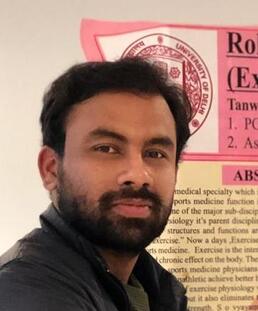
Ankur Kumar Tanwar, BAMS, MD-Ayurved, New Delhi, India - Completed my Graduation at the age of 23 years from Delhi University and Pursuing M.D. in Kriya Sharir (Physiology) from Ayurvedic & Unani Tibbia College & Hospital , Govt. of N.C.T. Delhi. He is the Publisher on International journal of panchkarma and ayurved medicine (IJPAAM). He has invited as guest speaker by Lok sabha TV on healthy India show.He has published more than 10 papers in reputed journals and has been serving as an editorial board member of many international Journal.
Topic: Aahara: the power of food in mental health issues
Abstract: Mental health problem is increasing during the past year .About 5 % of Indian population suffers from mental illness. Nearly 60 million Indian suffers from mental disorders. Some of the common risk factors of mental disorders are poverty, illiteracy, low income, family issues, alcohol and drug abuse. But No one focus on the dietary counterpart whom are changing in current era, we are move from healthy to unhealthy dietary patterns. Evidence suggests role of diet quality in the manifestation of mental disorders. In Ayurveda, Aahara(food or diet), Nidra and brahmcharya are considered as the three upstambha which are essential for life. Aahara is recognized as Vrittikaram Sresthtam which shows its importance in life. Ayurveda gives the concept of Panchmahabhuta and described all material in the world as Panchmahabhuta wither human body or the food. Dosha and Dhatu all are made up of these Panchmahabhuta . So Aahara play an important role in the manifestation of disease either sharirika or mansika or both. There is a relationship between Aahara and Mental health. In bhagvat gita, there is a description of Satvika, Rajsika and Tamsika Aahara which show the impact of Aahara on mana or mental health. The role of Aahara in the manifestation of mental disorder has become a area of research in the current era of modernization.
Topic: Aahara: the power of food in mental health issues
Abstract: Mental health problem is increasing during the past year .About 5 % of Indian population suffers from mental illness. Nearly 60 million Indian suffers from mental disorders. Some of the common risk factors of mental disorders are poverty, illiteracy, low income, family issues, alcohol and drug abuse. But No one focus on the dietary counterpart whom are changing in current era, we are move from healthy to unhealthy dietary patterns. Evidence suggests role of diet quality in the manifestation of mental disorders. In Ayurveda, Aahara(food or diet), Nidra and brahmcharya are considered as the three upstambha which are essential for life. Aahara is recognized as Vrittikaram Sresthtam which shows its importance in life. Ayurveda gives the concept of Panchmahabhuta and described all material in the world as Panchmahabhuta wither human body or the food. Dosha and Dhatu all are made up of these Panchmahabhuta . So Aahara play an important role in the manifestation of disease either sharirika or mansika or both. There is a relationship between Aahara and Mental health. In bhagvat gita, there is a description of Satvika, Rajsika and Tamsika Aahara which show the impact of Aahara on mana or mental health. The role of Aahara in the manifestation of mental disorder has become a area of research in the current era of modernization.
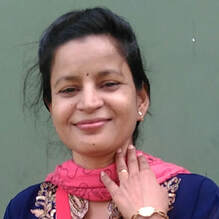
Sushma, BAMS, MD-Ayurved, Utter Pradesh, India - completed BAMS degree from Varanasi. Thereafter I completed M.S(ayu) in Prasutitantra and Stri Roga from Bangalore. Presently I am working as Assistant Professor in the Department of prasuti and stri roga in Dr Vijay Ayurvedic Medical College Hospital & Research Centre Varanasi, UP, INDIA.I have attended many conferences, workshops.I have presented many papers in various conferences. Practical Experience - Pre - Conceptional Pumsavana using Vata sunga and Eshwarlingi seeds for Garbha sthapana., Vamana in Poly Cystic Ovarian Syndrome in females, Management of one degree stri garbhashaya bhramsha using Kalaajaji churna and Lajawanti leaves with perineal exercises, Management of Infertility by Vamana to female and Virechana to male Uttarbasti with Phalasarpi in infertility caused due to uterine anomalies(blocked fallopian tubes), IUI (Intra uterine inseminisation ) in infertile couple, Management of Diabetes in pregnancy, Management of Filaria in patients.
Topic: Clinical approach to Sutika Unmaad with special reference to puerperal psychosis
Abstract: Pregnancy is most exciting and joyous time in a women’s life. Pregnancy and puerperium are at times sufficiently stressful to provoke mental illness. Today a high number of women continue to die during and after childbirth. Puerperal or Postpartum psychosis is very rare, but several mental health condition that is experienced by one or two in 1000 women in the weeks after having a baby. It is very serious as mother may be at risk of self harm and there is risk of potential harm to baby or other children. All puerperal psychological disorders grouped into three are Postpartum Blues, Postpartum depression, postpartum psychosis. Psychiatric illness with serious distortion of thought, behaviour, perception and gross impairment in reality testing are grouped as Psychosis. In Ayurvedic texts unmaad is described as similar clinical condition. Seat of manas is heart. Psychiatrists prescribe Mood stabilizers, Anti psychotics and Electroconvulsive therapy (ECT).These should be used with caution in breastfeeding(especially Sodium Valproate, Clozapine and Lithium). Healthy diet and physical activity along with antipsychotics minimize the risk of weight gain. In Western Countries alternative medicines including Herbal, Homeopathy are most common nowadays. Some women may choose these to support well-beings as they are seen as safer alternatives to medications. Holistic approach to mental health which integrates mind, body, and soul is offered by Ayurveda. This elucidates due importance for care of mother at every phase of her life especially antenatal and postnatal care. In Ayurveda unmaad is treated as somatic alteration, the main principle being to break the aavarana or manovaha srotas. Thus Shodhan, Shamana, Satvavajaya Chikitsa are used for management of sutika unmaad.
Key Words-Postpartum, puerperal psychosis, Sutika unmaad, Satvavajaya chikitsa, Aavarana
Topic: Clinical approach to Sutika Unmaad with special reference to puerperal psychosis
Abstract: Pregnancy is most exciting and joyous time in a women’s life. Pregnancy and puerperium are at times sufficiently stressful to provoke mental illness. Today a high number of women continue to die during and after childbirth. Puerperal or Postpartum psychosis is very rare, but several mental health condition that is experienced by one or two in 1000 women in the weeks after having a baby. It is very serious as mother may be at risk of self harm and there is risk of potential harm to baby or other children. All puerperal psychological disorders grouped into three are Postpartum Blues, Postpartum depression, postpartum psychosis. Psychiatric illness with serious distortion of thought, behaviour, perception and gross impairment in reality testing are grouped as Psychosis. In Ayurvedic texts unmaad is described as similar clinical condition. Seat of manas is heart. Psychiatrists prescribe Mood stabilizers, Anti psychotics and Electroconvulsive therapy (ECT).These should be used with caution in breastfeeding(especially Sodium Valproate, Clozapine and Lithium). Healthy diet and physical activity along with antipsychotics minimize the risk of weight gain. In Western Countries alternative medicines including Herbal, Homeopathy are most common nowadays. Some women may choose these to support well-beings as they are seen as safer alternatives to medications. Holistic approach to mental health which integrates mind, body, and soul is offered by Ayurveda. This elucidates due importance for care of mother at every phase of her life especially antenatal and postnatal care. In Ayurveda unmaad is treated as somatic alteration, the main principle being to break the aavarana or manovaha srotas. Thus Shodhan, Shamana, Satvavajaya Chikitsa are used for management of sutika unmaad.
Key Words-Postpartum, puerperal psychosis, Sutika unmaad, Satvavajaya chikitsa, Aavarana
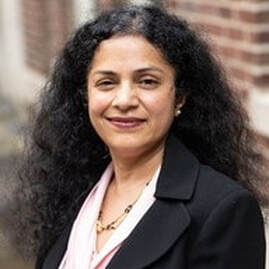
Asavari Manvikar, BAMS, MD-Ayurved, Minnesota, USA - is a traditionally trained Ayurvedic doctor who earned her, MD (Kayachikitsa) in 2000 from the prestigious University of Pune, India. In 2001, she was awarded a Gold Medal for her scholarly thesis work by the Institute of Indian Medicine. She has been practicing and teaching Ayurveda for more than 20 yrs. She is one of the leading Ayurveda experts in the Twin Cities area in Minnesota. She is a very passionate educator and compassionate healer. She serves as a graduate faculty at the Center for Spirituality and Healing, the University of Minnesota since 2011.. She is a founder and lead faculty at the Minnesota Institute of Ayurveda, that offers comprehensive professional level courses in the USA in flexible settings in person as well as distance learning formats. She is a leading Ayurvedic expert and has her private practice Ayuwellness, in the twin cities where she offers authentic ayurvedic practices and panchakarma treatments to the clients.
Topic: The role of Ayurveda and yoga in healing most common mental disorder: Anxiety
Abstract: Anxiety disorders are now recognized as the most common emotional disorder in the US, as well as in 10 out of 17 countries as per the current survey that was done by the World Health Organization. According to ADDA, American Anxiety and Depression Association of America, Anxiety disorders are the most common mental illnesses in the U.S., affecting 40 million adults in the United States age 18 and older, or 18.1% of the population every year. The soaring trend toward anxiety has been accelerated due to the increasing level of stress at the workplace, social environment as well as at homes. Currently, the anxiety disorder is skyrocketed due to uncertainty and fear induced by the pandemic. Ayurveda the science of self-healing has a very unique approach to understanding the causation of anxiety and personal traits. In this presentation, we will discuss excellent tools and technics offered by Ayurveda as well as yoga to balance the mind-body to improve emotional well-being and quality of life.
Topic: The role of Ayurveda and yoga in healing most common mental disorder: Anxiety
Abstract: Anxiety disorders are now recognized as the most common emotional disorder in the US, as well as in 10 out of 17 countries as per the current survey that was done by the World Health Organization. According to ADDA, American Anxiety and Depression Association of America, Anxiety disorders are the most common mental illnesses in the U.S., affecting 40 million adults in the United States age 18 and older, or 18.1% of the population every year. The soaring trend toward anxiety has been accelerated due to the increasing level of stress at the workplace, social environment as well as at homes. Currently, the anxiety disorder is skyrocketed due to uncertainty and fear induced by the pandemic. Ayurveda the science of self-healing has a very unique approach to understanding the causation of anxiety and personal traits. In this presentation, we will discuss excellent tools and technics offered by Ayurveda as well as yoga to balance the mind-body to improve emotional well-being and quality of life.
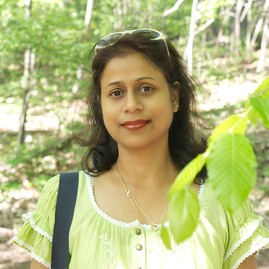
Vandana Baranwal, BSc., BAMS, MD-Ayurved, Minnesota, USA - is an Ayurveda physician, educator and prolific speaker. She has classically trained in India for 81/2 years, and completed her Masters in Ayurvedic Obstetrics and Gynecology from prestigious Banaras Hindu University, Varanasi. Growing up in the holy city of Banaras, India she has been very fortunate to learn from some of the world's renowned teachers. She brings her training and learning, and more than 25 years of experience to her practice in the form of remarkable skills of patient listening, observing and meticulous planning, deeply seated in Ayurvedic principles, science and spirituality. Before moving to the USA, she was Professor of Ayurvedic Obstetrics and Gynecology in Rajiv Gandhi University of Health Sciences, India. As a specialist of her domain Women Health, she continues to enjoy her association with many Ayurveda organizations and colleges in India as well USA. She is a published author of “Stree Roga Vimarsha”, a book of Ayurvedic gynecology and Prasuti Tantra Sandarshini” a book of Ayurvedic Obstetrics. She has been recognized by her peers for her excellence in teaching and was felicitated with “Charaka Award” in 2017, by Association of Ayurvedic Professionals of North America (AAPNA).
Topic: Sattvavajaya Chikitsa : Ayurvedic Psychotherapy and postpartum depression
Abstract: Postpartum depression (PPD) is a complex mix of physical, emotional, and behavioral changes that happen in a woman after giving birth. It affects approximately 6.5% to 30% of all childbearing women. The treatment of different psychological illnesses, as described in Ayurveda, reveals that the psychological, spiritual and pharmacological methods have been used side by side to
root out the disease. The psychotherapeutic approach to the management has been described under Sattvavajaya Cikitsa. The ancient classical concepts of Sattvavajaya and its basic tenets have contemporary relevance and clinical applications in management of Postpartum depression. Ayurvedic medicine may offer an alternative healthcare paradigm that may expand
the current set of treatment modalities for patients experiencing PPD.
Topic: Sattvavajaya Chikitsa : Ayurvedic Psychotherapy and postpartum depression
Abstract: Postpartum depression (PPD) is a complex mix of physical, emotional, and behavioral changes that happen in a woman after giving birth. It affects approximately 6.5% to 30% of all childbearing women. The treatment of different psychological illnesses, as described in Ayurveda, reveals that the psychological, spiritual and pharmacological methods have been used side by side to
root out the disease. The psychotherapeutic approach to the management has been described under Sattvavajaya Cikitsa. The ancient classical concepts of Sattvavajaya and its basic tenets have contemporary relevance and clinical applications in management of Postpartum depression. Ayurvedic medicine may offer an alternative healthcare paradigm that may expand
the current set of treatment modalities for patients experiencing PPD.
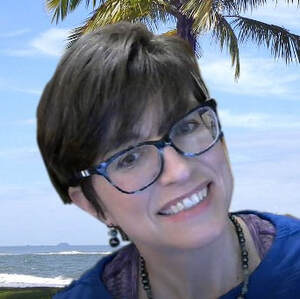
Stephanie Brail, CAP, ERYT, Maryland, USA - is a certified Ayurvedic Practitioner and Wellness Coach. She is a faculty member of Reiki Awakening Academy. In addition to her Ayurvedic training, she has studied herbalism with world-renowned experts David Crow and KP Khalsa in an advanced 6-month internship. Stephanie is also a Registered Yoga Teacher (RYT 500/E-RYT 200) and Yoga Alliance Continuing Education Provider (YACEP). She completed more than 500 hours of yoga therapy training, including Ayurvedic yoga therapy, and has also studied with Gary Kraftsow, Leslie Kaminoff, Judith Lasater, and many other great yoga teachers. Her life coach training includes Master Life Coach certification through Transformation Academy, Life Breakthrough Coach certification, continuing education through Coachville, and specialized training as a Health and Nutrition Life Coach. As a certified Qigong instructor, Stephanie has also studied Qigong, TCM, and acupressure with Daisy Lee, Roger Jahnke, Lee Holden, Michael Reed Gach, and others.
Topic: Anxiety and Anger – Addressing Vata-Pitta Emotional Imbalance
Abstract: With the stress of modern life, an increasingly common imbalance is Vata pushing Pitta. Emotionally, this can lead to anxiety, confusion, frustration, and anger. In this session, we will explore Ayurvedic herbal remedies as well as specific meditations and yogic practices to help calm the mind and soothe the emotions.
Topic: Anxiety and Anger – Addressing Vata-Pitta Emotional Imbalance
Abstract: With the stress of modern life, an increasingly common imbalance is Vata pushing Pitta. Emotionally, this can lead to anxiety, confusion, frustration, and anger. In this session, we will explore Ayurvedic herbal remedies as well as specific meditations and yogic practices to help calm the mind and soothe the emotions.
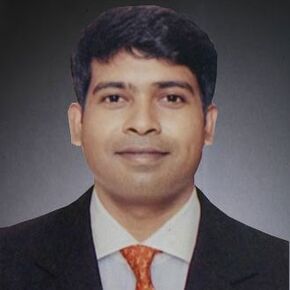
Hemang Shah, BAMS, MS (Ayu), Maharashtra, India - He has an integrated approach to his practice for treatment of eye. He and his team at AYUSH Vision Care, under the guidance of many eminent modern and Ayurved physician, recently working with Dr. Chhotalal Shah and dealing with eye diseases like Diabetic Retinopathy, Glaucoma, Dry Eye Syndrome, Myopia, Age-related Macular Degeneration, Uveitis, Corneal Dystrophy, Computer Vision Syndrome etc. I have special interest in the area of healthy mind and healthy being. Along with treatment for eye or general health, treating mind or giving specific instructions for mental well-being is utmost important. My aim is to establish authenticated and evidence based Ayurvedic Treatment for improving healthy Mind and bring stability. I will talk about clinical scenario of Ayurvedic Psychology practice, importance of Psychology, scope and promising results for Healthy mind through Ayurved pathya apathya, that is daily and seasonal regime and Medicine. How to take care of thoughts, understand mind at different levels of being in routine, dos and don't to be followed. Take home message Etc
Topic: Mind: New discoveries
Abstract: Intro to Ancient literature on Mind. Added knowledge on "anatomy and physiology of Mind". Mental well-being. Do's and Don'ts in daily life. Co-existence or Saha astitva vad and madhyastha darshan proposal for newer understanding and broader perspective inclusive of every facet of life. This paper will enlighten everyone on mind and its facets on different levels. Its application in treatment and maintain health and improve mental well-being to newer heights.
Topic: Mind: New discoveries
Abstract: Intro to Ancient literature on Mind. Added knowledge on "anatomy and physiology of Mind". Mental well-being. Do's and Don'ts in daily life. Co-existence or Saha astitva vad and madhyastha darshan proposal for newer understanding and broader perspective inclusive of every facet of life. This paper will enlighten everyone on mind and its facets on different levels. Its application in treatment and maintain health and improve mental well-being to newer heights.
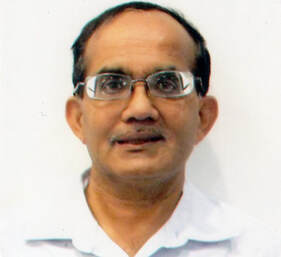
Nagabhushan Moolky, PhD, CNS, Illinois, USA - a certified nutrition specialist, Scientist & Yoga researcher. He worked as a scientist for the last 35 years. He was a Scientific Officer at Tata Memorial Center Cancer Institute, Bombay, India where he completed his Ph.D. He worked as a scientist in several top notch Universities in USA. He was the first one to show (1984) that some of the spices (its principles) - Turmeric (Curcumin), Ginger (Gingerol, Shaogol and zingerone), Catechu (Catechin) and betel leaf (Hydroxychavicol) prevents genetic damage resulting in cancer formation caused by environmental and dietary chemicals. He is the first one to show (1984) that Turmeric in diet prevents virus-induced spontaneous mammary tumors in mice. His research was recognized by more than 20 awards by national and international organization including Young Scientist Award (Gold Medal), 1988 from Indian Council for Medical Research (ICMR), New Delhi, India and New Investigator Award 1989, American College of Nutrition, USA. He has published his research findings in peer-reviewed national and international scientific journals and also presented more than 150 abstracts in national and international scientific meetings. In 2004, he was invited to present his work at the First International conference on childhood leukemia, London. The presentation was covered by all major news papers and news channels around the world including BBC, CNBC, CBS, ABC news.
Topic: Ayurvedic Approaches to a Healthy Mind, Role of Sleep & Yoga
Abstract: Ayurvedic Approaches to a Healthy Mind, Role of Sleep & Yoga. Dr. Nagabhushan Moolky, Ph.D., C.N.S. Usha Kolpe, MD** & Arnav Shandilya*. Senior Scientist, Health Coach, Expert Witness, Independent Consultant – Nutrition & Toxicology, Oakbrook, Illinois, USA., **VA Hines Hospital, Maywood, Illinois, USA, *Neuqua Valley High School, Naperville, Illinois, USA.
From the beginning of Bharat civilization around 12,000 years ago, the scientific and philosophical analysis of the human mind and behavior and their effect on human health, happiness and evolution were revealed. Ayurveda, the traditional medical system (5000 years old), originally written by Charaka and Sushruta around 400 BCE describes diseases and treatment methods and medicines. Ayurvedic practices also include mental health – diseases, prevention and treatment. Yoga (12,000 years old) is one of the systems that prevent mind from unnatural deviations. Such a mind creates/enhances the chance of diseases and unhappiness.
Some religious and cultural practices were incorporated in our daily life, and are not recognized as Yoga: Performing prayer, surya namaskar (sequence of 12 asanas with mantras of gratitude to sun, the life force) and uddanda namaskar during puja or when seeing Gurus (teachers), elders, and parents. In order to be happy, we should show gratitude. In previous generations of education, students were asked to do bhaski as punishment (now labeled as Superbrain yoga). It is now scientifically shown that performing bhaski maintains the balance between left and right hemispheres of the brain, and thus normalizes brain hyperactivity. Yoga nidra is also a well known yoga sequence that benefits both body and mind with much needed relaxation.
Another relaxation form is Shiva asana, commonly and incorrectly labeled shavasana. Shiva means dynamic, while shava means corpse/no life force. Yoga is a dynamic action to integrate body & mind. The Bhagavad gita mentions “Samatva yoga”. This asana integrates mind and body and makes unity of life force with minimal activity. The performer is still alive and conscious, but is not stimulated internally or externally. These preventive methods are straight forward, simple, not time consuming and can be performed by all ages. Finally, there are ayurvedic diets, plants, and shastriya formulations that are also recommended and beneficial for mental health.
Topic: Ayurvedic Approaches to a Healthy Mind, Role of Sleep & Yoga
Abstract: Ayurvedic Approaches to a Healthy Mind, Role of Sleep & Yoga. Dr. Nagabhushan Moolky, Ph.D., C.N.S. Usha Kolpe, MD** & Arnav Shandilya*. Senior Scientist, Health Coach, Expert Witness, Independent Consultant – Nutrition & Toxicology, Oakbrook, Illinois, USA., **VA Hines Hospital, Maywood, Illinois, USA, *Neuqua Valley High School, Naperville, Illinois, USA.
From the beginning of Bharat civilization around 12,000 years ago, the scientific and philosophical analysis of the human mind and behavior and their effect on human health, happiness and evolution were revealed. Ayurveda, the traditional medical system (5000 years old), originally written by Charaka and Sushruta around 400 BCE describes diseases and treatment methods and medicines. Ayurvedic practices also include mental health – diseases, prevention and treatment. Yoga (12,000 years old) is one of the systems that prevent mind from unnatural deviations. Such a mind creates/enhances the chance of diseases and unhappiness.
Some religious and cultural practices were incorporated in our daily life, and are not recognized as Yoga: Performing prayer, surya namaskar (sequence of 12 asanas with mantras of gratitude to sun, the life force) and uddanda namaskar during puja or when seeing Gurus (teachers), elders, and parents. In order to be happy, we should show gratitude. In previous generations of education, students were asked to do bhaski as punishment (now labeled as Superbrain yoga). It is now scientifically shown that performing bhaski maintains the balance between left and right hemispheres of the brain, and thus normalizes brain hyperactivity. Yoga nidra is also a well known yoga sequence that benefits both body and mind with much needed relaxation.
Another relaxation form is Shiva asana, commonly and incorrectly labeled shavasana. Shiva means dynamic, while shava means corpse/no life force. Yoga is a dynamic action to integrate body & mind. The Bhagavad gita mentions “Samatva yoga”. This asana integrates mind and body and makes unity of life force with minimal activity. The performer is still alive and conscious, but is not stimulated internally or externally. These preventive methods are straight forward, simple, not time consuming and can be performed by all ages. Finally, there are ayurvedic diets, plants, and shastriya formulations that are also recommended and beneficial for mental health.

